- About us: Ecotourism in Tibet
- Trip Leader
- Mountain Reverie
- Nyenbo Yurtse Trek
- The Spirit of the Glacier: Trekking Amnye Machen
- Sutras and Saddles
- Red Rocks and Monasteries
- Prayers in the Plateau
- Pilgrim’s Pride
- Xunhua to Rebkong Backpacking
- Trekking Legendary Minya Konka
- Yuzhu Feng Expedition
- The Headwaters of the Yellow River
- Thangka Paintings and Yak Yoghurt
- Kanbula and Labrang
- Wild Golok: The tribe of the Yellow River
- YouNing Monastery Day trip
- Shachung Monastery and day hike
Qinghai Lake Day Trip
- Sharzong Ritod Monastery Day Trip
- DDQ Wild! Qinghai, Western China
- DDQ Wild! Mount Rinjani, Indonesia
- DDQ Wild! Ulaanbaatar, Mongolia
- DDQ Wild! Chiang Mai, Northern Thailand
- Laji Mountain one day team building
- Team building Weekend Event
- Best season for travel
- Travel Info
- Thailand & SE Asia
- Lhasa and Central Tibet
- Reviews & Testimonials

What is Tourism Leakage?
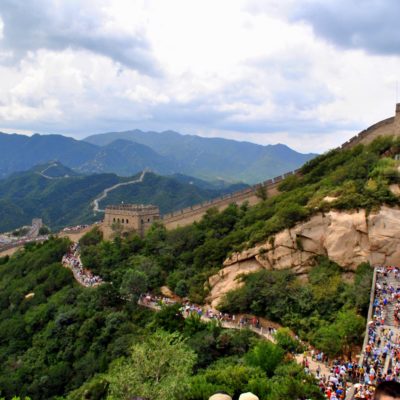
In the study of tourism, tourism leakage is the way in which revenue generated by tourism is lost to other countries’ economies. Leakage may be so significant in some developing countries that it partially neutralizes the money generated by tourism. In this article we will explore what contributes to tourism leakage and how we can stop it.
Try to think about the money you spent the last time you went on an international holiday.
How were your expenses distributed?
What were the most significant costs?
Were there cost of transportation such as airline tickets and airport transfers?
How about accommodation costs and guided excursions and tours?
What about the food and drinks you enjoyed?
Maybe you went shopping too.
Now ask yourself, what proportion of your total holiday expenditure contributed to the local economy of your chosen destination?
When we break down our holiday expenses and start to analyse who are on the receiving end of our money spent, we find that in most cases only a fraction stays within the local community. Imagine a holiday where you fly with an international airline, stay at an international hotel chain booked through a multi-national hotel agent. The hotel has foreign management and staff to meet the language and service training demands by international tourists. The food and drinks you enjoy are characterised by imported products to satisfy international taste buds and give the comfort of familiarity in a foreign setting. The souvenirs are mass produced in another country with cheaper labour costs, and your tour guide is your fellow countryman.
This is not an uncommon holiday setup. This is what we call ‘tourism leakage’, the phenomenon where the vast majority of tourism revenue leaks out of the local economy and into the pockets of big international companies.
Why is tourism leakage a problem?
Tourism has a fantastic potential to create local jobs, boost community development, infrastructure, and education. However, these benefits are hampered by a tourism setup, such as the above. The example is not uncommon. It is, in fact, how many of us spend our holidays. But not only does tourism leakage prevent socio-economic benefits from reaching the communities, the local residents are often the unwilling recipients of the nuisances and problems related to tourism. These negative impacts can for example be inflated prices, shortage of water and other resources, increased wastage, and overcrowdedness.
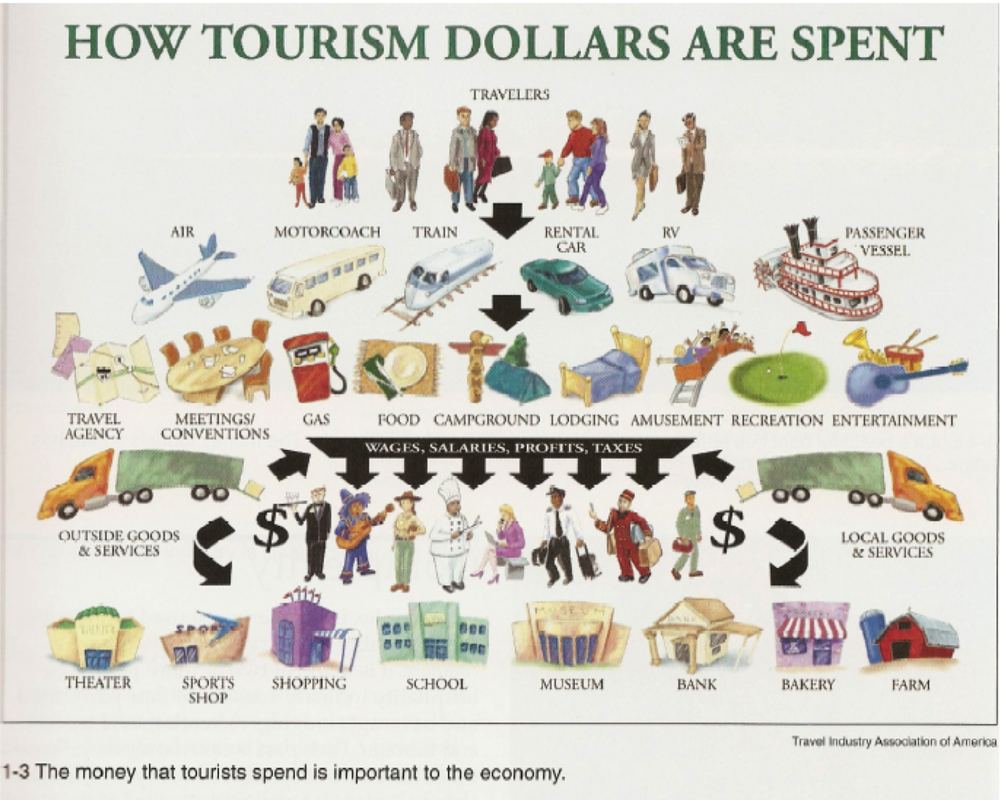
A Study of Tourism Leakage in Thailand
A study of tourism ‘leakage’ in Thailand estimated that 70% of all money spent by tourists ended up leaving Thailand (via foreign-owned tour operators, airlines, hotels, imported drinks and food, etc.). Estimates for other Third World countries range from 80% in the Caribbean to 40% in India.
Leakage is not restricted to less-developed countries. Australia experiences a significant leakage effect from Japanese tourists. Though they spend the most per capita of all tourists to Australia, much of what they spend is through Japanese travel companies, Japanese hotels, and other foreign-owned businesses. There is thus significant leakage to Japan’s economy.
Leakage not only varies from country to country, but also from industry to industry. High-income tourism may well significantly increase leakage, as that industry likely involves importing more goods and services than usual. Ecological or adventure tourism may exhibit a very small degree of leakage, however, as they place value solely on what the host country has to offer.
Effect of Tourism Leakage
As a result of the leakage effect, tourism industries in developed countries often are much more profitable per dollar received than tourism in smaller countries. Islands, in particular, suffer from significant leakage. In countries such as Turkey and the United Kingdom, the benefit to the economy from tourism is twice the dollar amount spent by tourists. In smaller places, such as Micronesia and Polynesia, that benefit is half the dollar amount spent. Some locations have managed to nullify the leakage effect almost entirely – New York City claims to generate seven dollars for the local economy per dollar spent by tourists. Some estimates of the degree of leakage claim only 5% of money spent on tourism remains in a developing country’s economy.
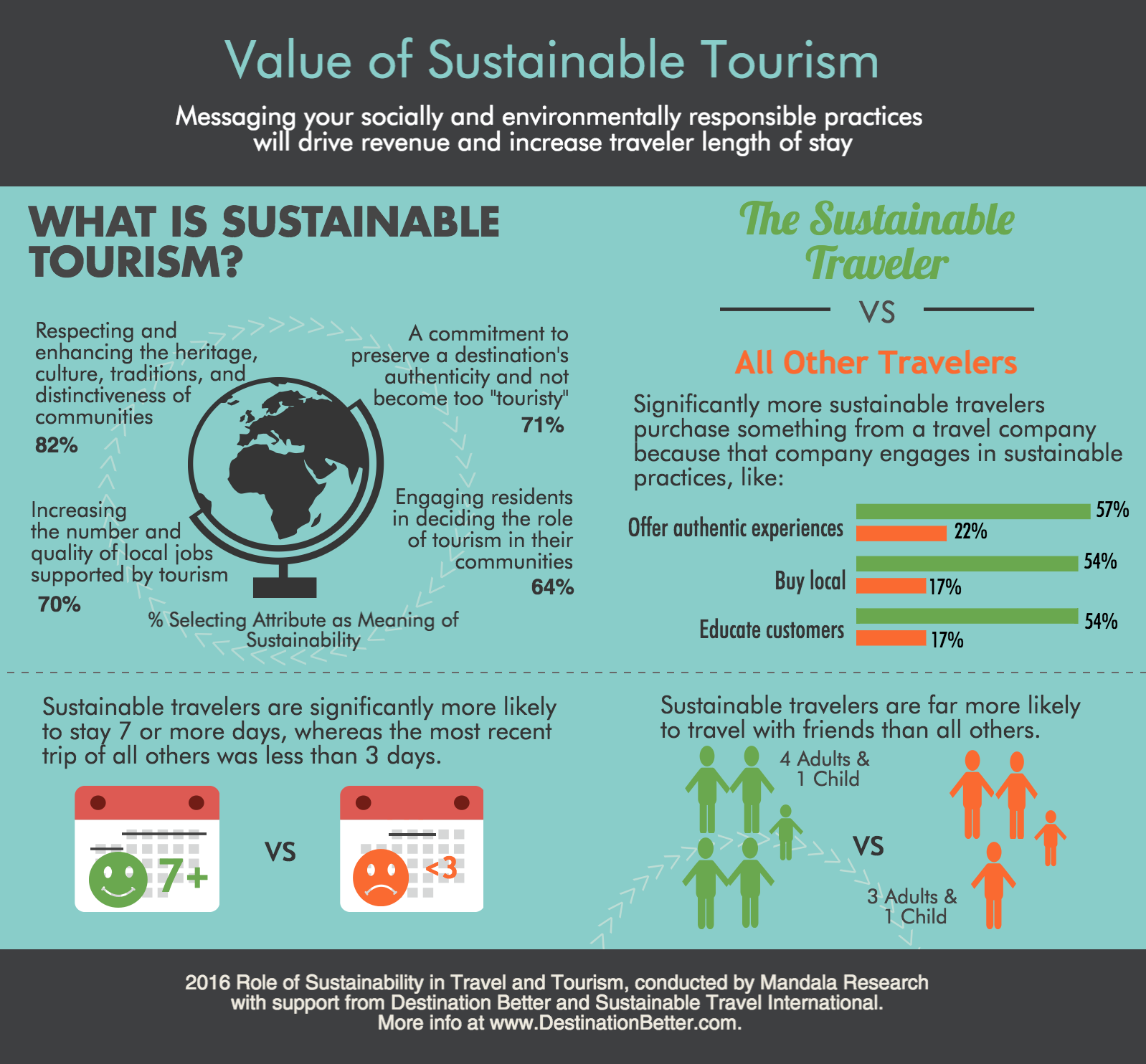
What can you do to minimize tourism leakage?
Be adventurous, experience the destination you choose to visit.
Eat, sleep, and explore locally. Immerse yourself in local language, customs, and culture, and embrace the fact that the world is colourful, diverse, and exciting.
For more on how we work in sustainable tourism and prevent tourism leakage see here.
Leave a Reply Cancel reply
Your email address will not be published. Required fields are marked *
This site uses Akismet to reduce spam. Learn how your comment data is processed .

Reviews & Testimonials
I absolutely loved the trip to Qinghai Lake. It was supposed to be me, my wife and our 15mth old son but was wife was ill so I ended up going without her. It was my first time going out all day with my son without my wife and I was a little unsure how it would go. It ended up being an amazing day and Ben was amazing, happy to ‘go with the flow’ and spend the day in a way that best suited my son. My little boy absolutely loved playing in the wide-open spaces, playing with the locals and we even went on a fun speed boat. We had a great little picnic on the beach, with a breathtaking view of the lake. Although I can speak some Chinese, it was super relaxing not having to worry about anything as Ben did all the hard work and I simply got to relax and enjoy the day with my son. I cannot recommend Elevated Trips enough!
Sarah Margaret H., Perth - Australia
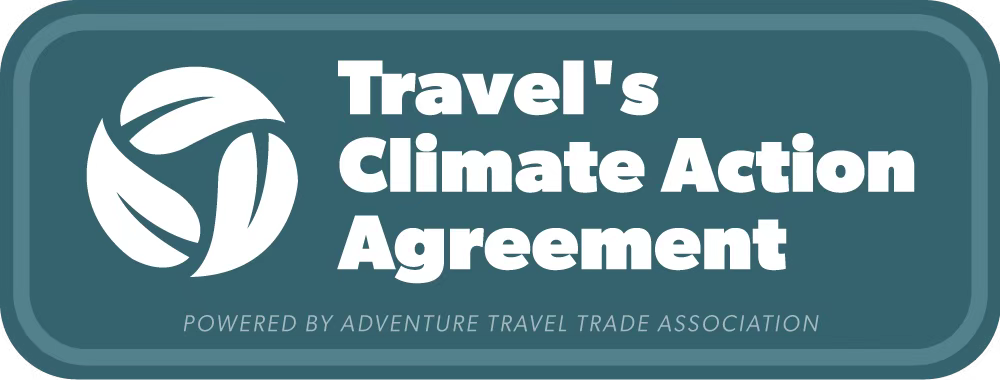
Designed by eRui
Please prove you are human by selecting the Tree .
Please leave this field empty. Send
Booking/ Enquiry Form
Please fill the form bellow with the details of the trip you are interested in. We are more than to happy to assist you in planning your trip.
Please prove you are human by selecting the House .
Please leave this field empty.
Destinations
Popular destinations, discover lapland.
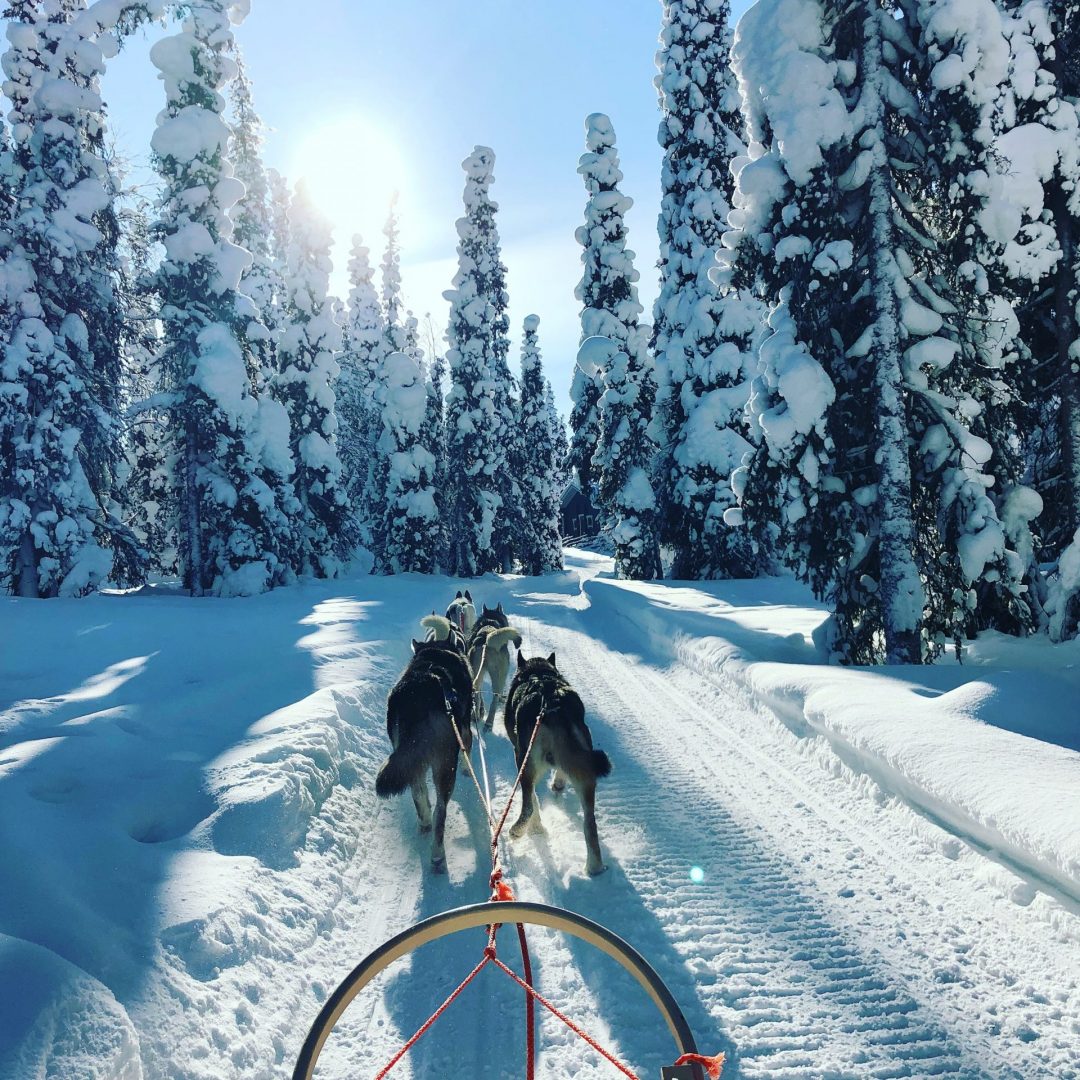
From husky rides through pristine frozen forests to excursions into the Polar night to view the Northern Lights, discover unforgettable Lapland holidays.
Take Me There
Discover Europe
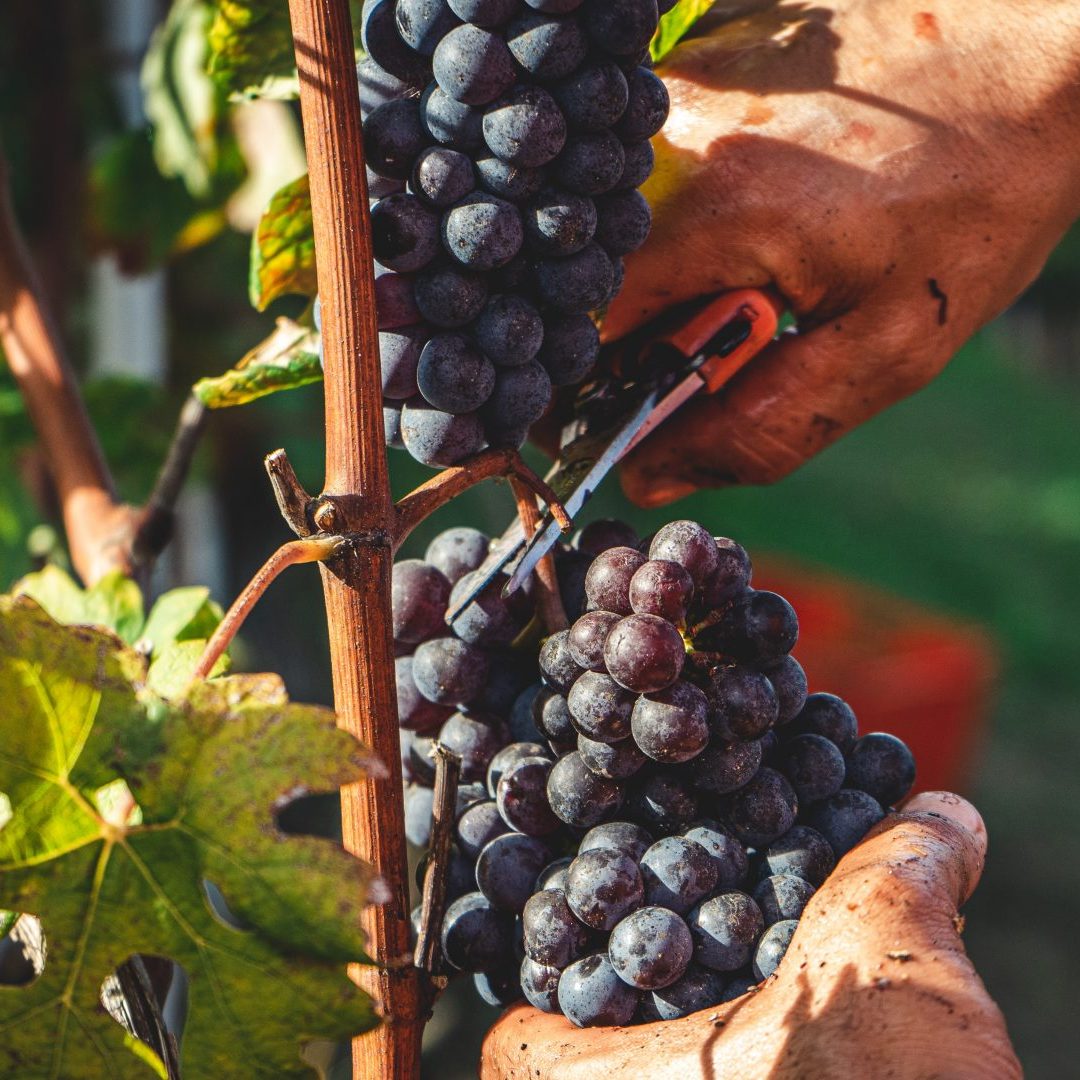
Whether it’s the bustling streets of Naples or the lush vineyards of Tuscany, prepare to be enchanted by Italy’s culture, cuisine, and magical scenery.
Central & Latin America
Discover costa rica.
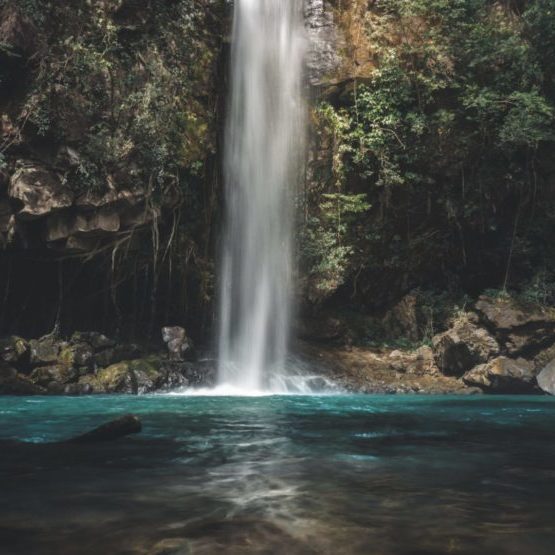
Discover volcanos, jungle, beaches, world class wildlife and the concept of Pura Vida on adventures in the tropical land of Costa Rica.
Discover Kenya
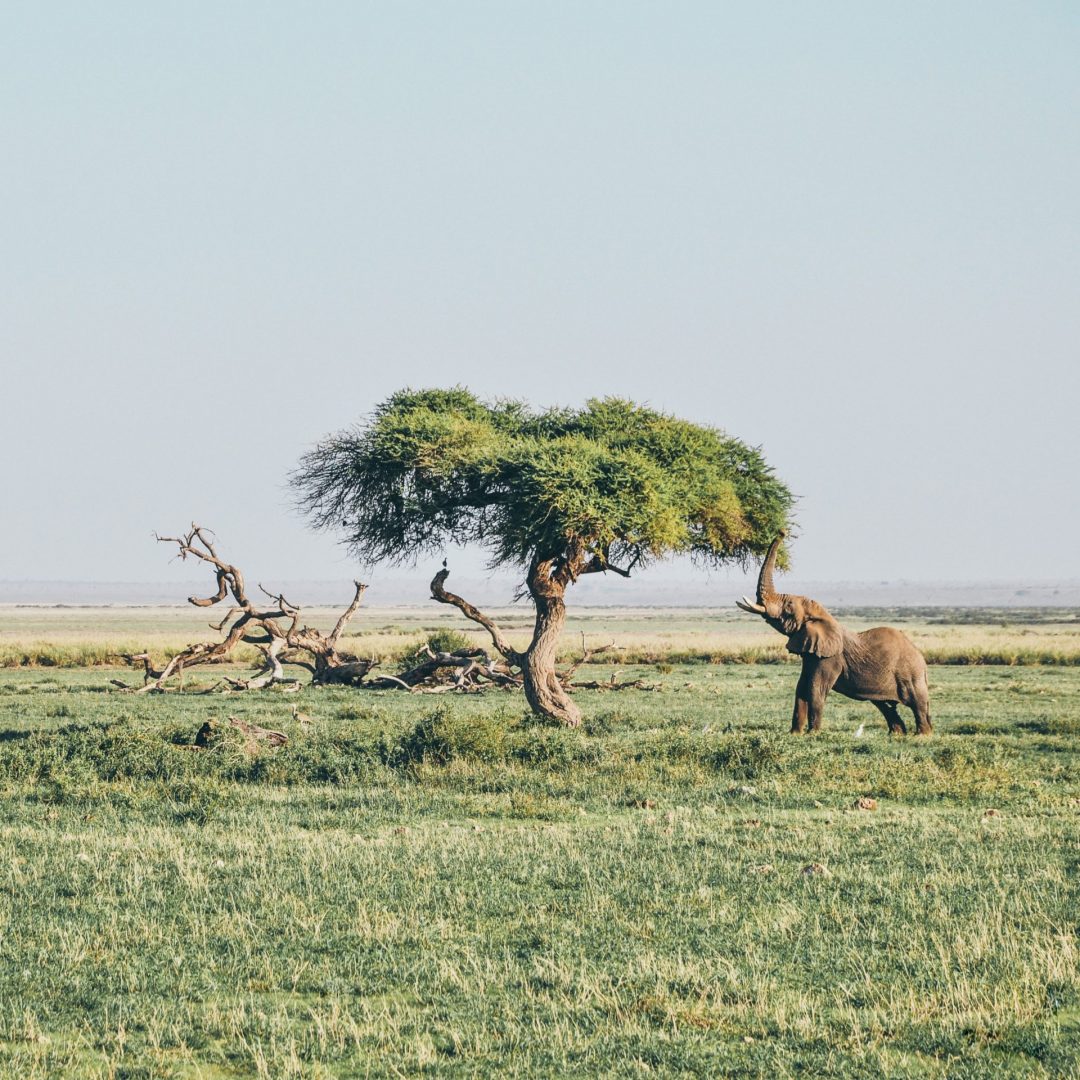
As well as one of the top destinations on earth for safari, Kenya also hosts incredible mountain ranges and beautiful Indian Ocean beaches.
Discover Cambodia
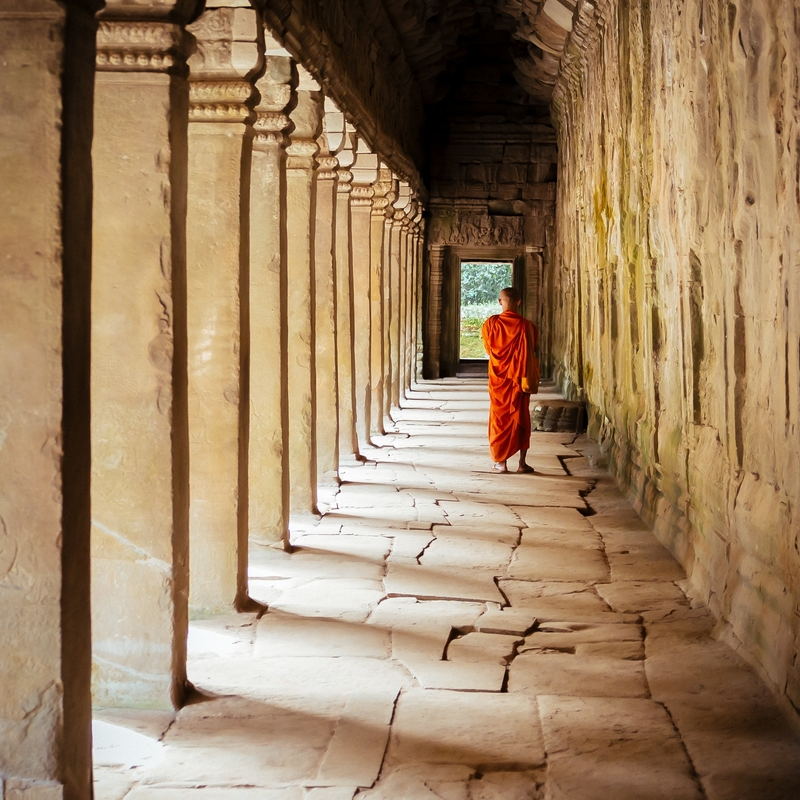
Ancient temple complexes, magical white-sand beaches and jungles dotted with cool waterfalls, Cambodia is not one to miss.
Experiences
Experience collections.
Drive Iceland's Ring Road
Island Hopping in Greece
4 Night Family Lapland Adventure
Snowshoeing Adventure in the Pyrenees
Discover The Best Of Costa Rica
Thailand Off The Beaten Track Adventure
Discover our experiences
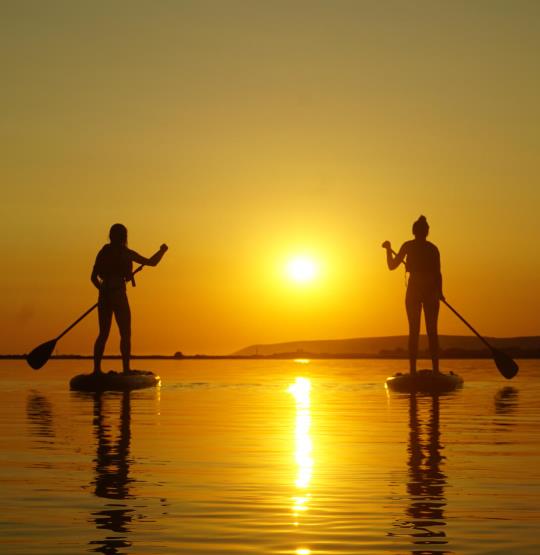
From winter sun escapes in the Maldives to bucket list adventures in Peru, explore our experience collections of local authentic experiences.
Take me there
Off the Beaten Track Holidays
Costa Rica East to West
Highlights Of Southern Peru
Experience The Real Maldives
The Best Of Uganda: Wildlife Safari
The Ultimate Cultural Morocco Tour
Bangkok To Beaches: Thailand Off The Beaten Track
Hanoi To Ho Chi Minh: Ultimate Vietnam In 14 Days
Sri Lanka: Immersive Adventure Country And Coast
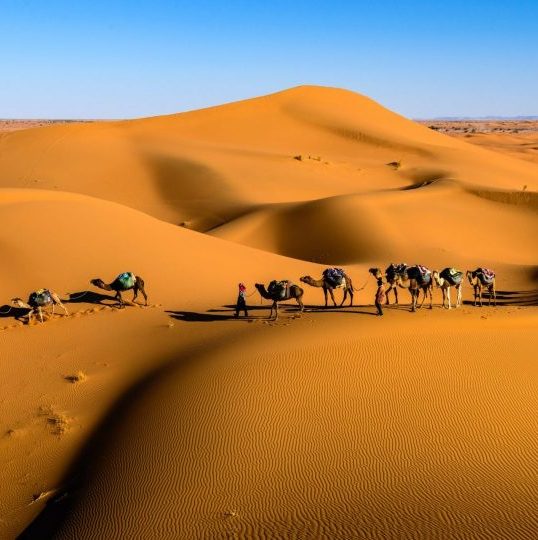
Not In The Guidebooks adventures take you to the places other tourists miss – explore our offbeat, authentic and local itineraries here.
Foodie Holidays
Cooking in Italy
Cooking in France
Cooking in Spain
Food Adventures in England
Food Adventures in France
Food Adventures in Italy
Wine in France
Wine in Italy
Wine in Spain
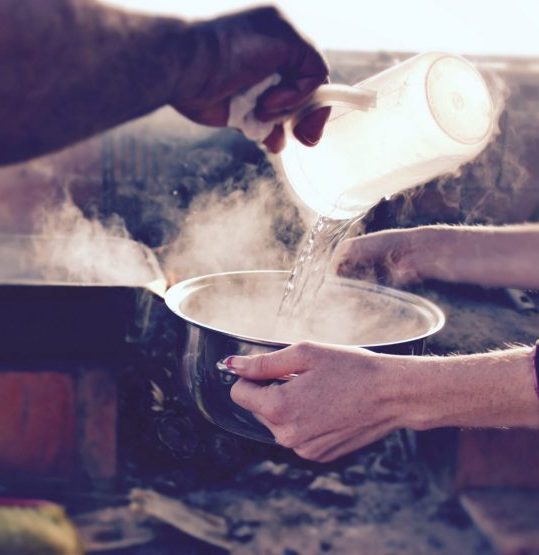
We find that the fastest route to the heart of a culture is through its cuisine. Whether that’s cooking in Italy or exploring markets in Vietnam.
Creative Holidays
Painting in France
Painting in Spain
Painting in Italy
Arts and Crafts in France
Arts and Crafts in Italy
A Creative Week in Spain
Photography in France
Photography in Italy
Photography in Spain

For a holiday that creates more than memories, explore our range of painting, photography, and art & crafts holidays.
Active Holidays
Walking in Ireland
Walking in Spain
Walking in Portugal
Horse Riding in Italy
Horse Riding in Morocco
Horse Riding in Spain
Surfing in Costa Rica
Surfing in England
Surfing in Portugal
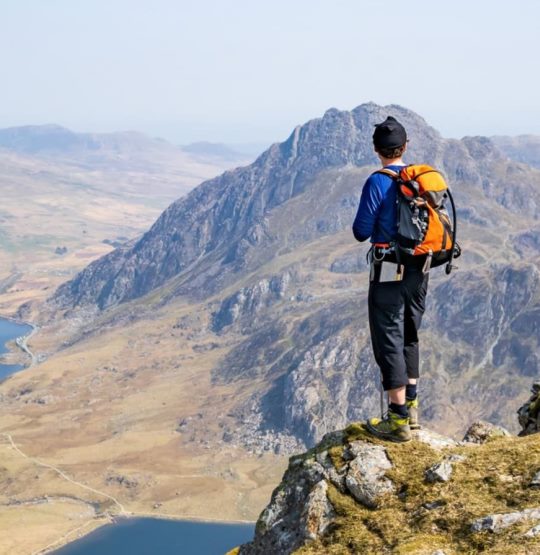
The best way to explore a landscape is to immerse yourself in it on an adventure, whether hiking the Spanish Pyrenees or kayaking in Montenegro.
Singles Activity Holidays
Cookery Holidays in France
Cookery Holidays in Italy
Cookery Holidays in Spain
Wellness Holidays in Costa Rica
Wellness Holidays in Italy
Wellness Holidays in Portugal
Creative Holidays in England
Creative Holidays in France
Creative Holidays in Spain
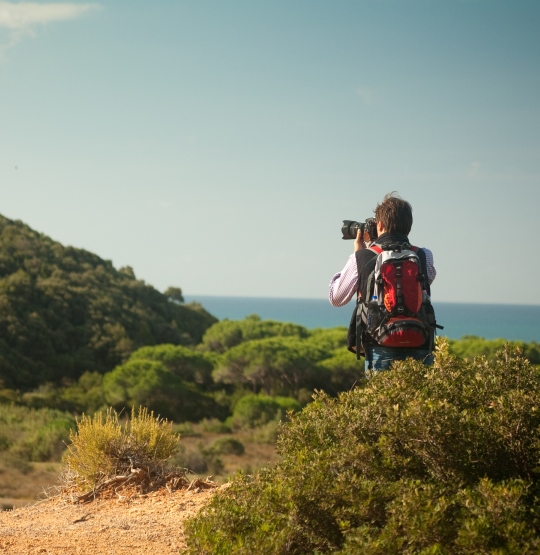
Explore the world on your terms by meeting like-minded travellers who share your passion for discovering new places and experiencing new cultures.
Wellness Holidays
Wellness Holidays in Wales
Wellness Holidays in Spain
Yoga Holidays in Costa Rica
Yoga Holidays in Italy
Yoga Holidays in Portugal

Take the opportunity to refresh, recharge and revatilise on a wellness holiday that also takes you to experience a new culture.
Wildlife Holidays
Wildlife Holidays in Costa Rica
Wildlife Holidays in Cambodia
Wildlife Holidays in Uganda
Wildlife Holidays in Kenya
Wildlife Holidays in Namibia
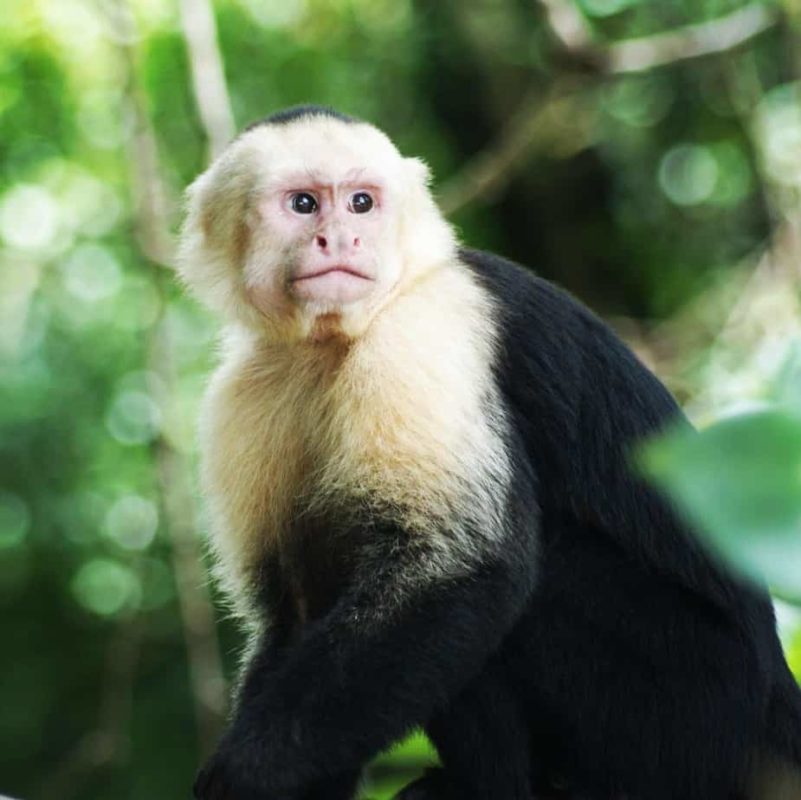
From the Masai Mara to Corcovado National Park, with NITGB you can witness some of the most spectacular wildlife on earth in a responsible manner.
Unique Accommodation
Glamping Accommodation in England
Glamping Accommodation in Wales
Hot Tub Accommodation in England
Hot Tub Accommodation in Wales
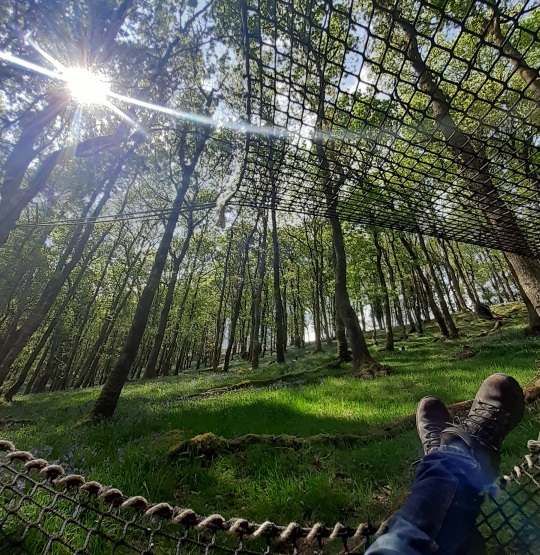
Discover unique accommodation that turns an ordinary weekend escape into a memorable, offbeat experience, whether in the UK or further afield.
- Call +44-203-048-3044 Agent login
What is Tourism Leakage?

Tourism is good for the world economy, right? It must be – in 2018, tourism contributed an estimated £1.3 trillion to the global economy . That is a lot of money. So it must stand to reason that communities with a lot of tourism stand to make a sizeable income. Right? Well, unfortunately not – largely due to a combination called tourism leakage.
Especially in developing nations, the vast majority of a holiday cost – as much as 95% in some places – ends up elsewhere. In this article, we’ll explore exactly what tourism leakage means, why it happens, and, most importantly, what you can do to prevent it while you’re travelling.
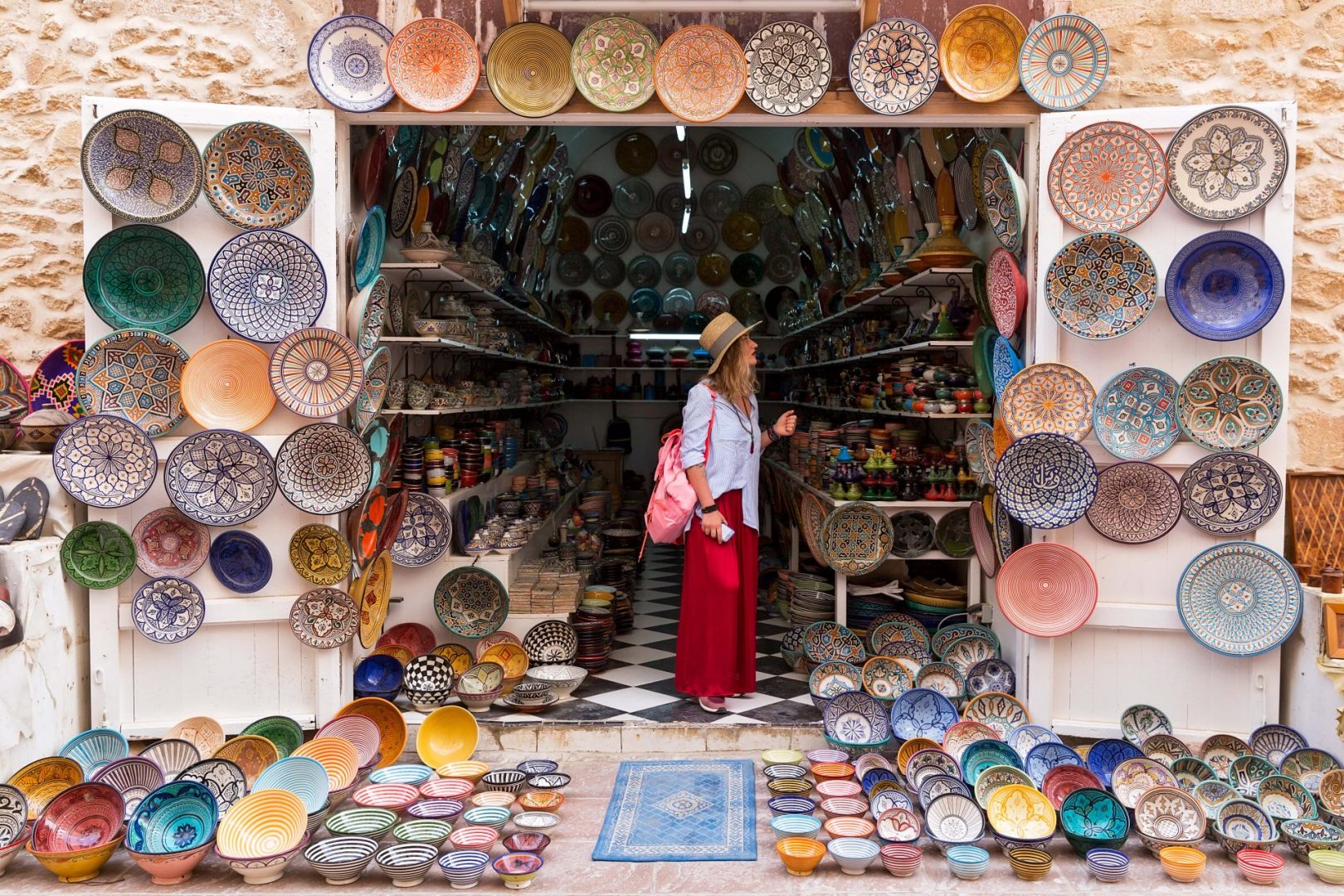
What is tourism leakage?
Tourism leakage is the idea that, of all the money you spend on a holiday, surprisingly little ends up in the pockets of the community you visit. Instead – for a number of reasons – it ends up ‘leaking’ out. From profits distributed to foreign companies (like airlines or resorts), to foreign imports to meet tourism demand, the actual amount of money that ends up where you think you’re spending it can vary wildly. But, the effects are particularly pronounced in developing nations, where, according to the UN’s Ocean Atlas:
On average, of each $100 spent on a vacation tour by a tourist from a developed country, only around $5 actually stays in a developing-country destination’s economy.
Ocean Atlas points to two key sources of tourism leakage: import leakage, and export leakage.
Import Leakage
This is when demand for certain products, generated by tourists, cannot be met by a local economy. So local suppliers have to look elsewhere, spending a significant proportion of their income on importing the goods tourists want.
Think about it like this. You touch down from a particularly long-haul flight, and all you want is a cold beer. There’s a bar in the airport – you could choose to buy a Heineken over a locally brewed and bottled beer . They’re similarly priced – the Heineken might be a little bit more expensive. But you know that, if you buy the local beer, most of your money will stay in the local community. Whereas, if you buy the Heineken, a major proportion of your money will be spent on the cost of importing.
Ocean Atlas says up to 50% of tourism income for developing countries is lost through import leakage. So, you choose to buy the local beer, you get to try something new, and you benefit the community while doing it.
Export Leakage
On the other end of the spectrum, export leakage is when foreign investors export profits they have made back to their home country.
Again, by way of example, imagine an international organisation buys a pristine strip of white beach in the Caribbean, and spends multiple millions of dollars on developing it in to a luxurious, all-inclusive resort. That’s a significant investment, and could represent a major risk to shareholders. So, the primary interest of that resort is to generate profit. Even though it employs local workers, and benefits directly from the natural beauty of the coastline, the money made is getting sent right back to the company’s HQ overseas.
And this example isn’t a fiction. In fact, a UN study in the Caribbean found that St Lucia lost as much as 56% of its tourism income to export leakage, while Jamaica lost up to 40%

Why is tourism leakage bad?
Apart from the obvious – the exploitation of local people, communities, and places for profit – tourism leakage has a number of negative impacts.
It fosters inequality
Tourism leakage is a snowball effect. If multi-national organisations are the only ones who can afford to invest in large-scale tourism infrastructure, but they keep removing all of the profits from the infrastructure they build. Well, nothing will change. In contrast, if travellers reduce their tourism leakage, they can support local communities to develop economically, reducing global inequality and helping these communities take their future in to their own hands.
It creates cultural erosion
If travellers are visiting a place, but demanding food from back home. If they will only stay in big resorts created by global companies. If they only buy from expensive foreign brands. There is very little room for local cultures to flourish or even exist. Locals become priced out of their homes, in favour of more profitable tourism provisions. Ultimately, that leads to a world that is far less vibrant, where global cultures are diluted because they don’t make enough money. However, when travellers actively seek local cultures, to learn about them, respect them, and experience them – then, those cultures flourish. We help to build a world that is better, brighter, and more diverse.
It leads to a worse holiday
And let’s not forget, tourism leakage is likely to create a worse holiday experience as well. If a resort is created and run by foreign interests, how likely is it that resort will actually represent the place you’re visiting? How likely is it to give a true flavour of the location, and show of everything that makes it so amazing? We’d say, very unlikely. Instead, choosing to stay in locally run accommodation and support local hosts gives a more genuine experience. It helps travellers get under the skin of their destination, and experience it as it actually is. It creates better holidays, and it supports local communities – win-win!

5 tips to prevent tourism leakage
One of the easiest ways to prevent tourism leakage – specifically import leakage – is simply to buy local. That means that, when you’re in a location, try to buy goods and services that are made or grown there. Often, tourism boards will have stickers or other certifications to demonstrate that something is produced locally – when you’re travelling somewhere new, it’s worth looking online to see if there is any such system in place. It can also mean actively seeking out local, independently owned brands, shops, or market stalls over large multi-national brands that you may be familiar with from back home.
Simply, buying locally is a great way to make sure the money you spend stays where you spend it. More specifically, it means people in the community you visit don’t have to spend lots of money importing expensive alternatives (which significantly diminishes their profit). And, what’s more, it’s an opportunity to experience even more of what that community has to offer.
In contrast, resorts and hotels are one of the largest causes of export leakage in travel. International organisations building hotels and then taking profits back to their headquarters in different countries means very little of your accommodation spend will actually benefit the community you visit. But whilst many travellers have come to know and trust these international hotel and accommodation brands, in reality, we’ve found the best places to stay are almost always run by locals . They have the in-depth knowledge of the place, and a genuine interest in sharing its secrets with you.
Plus, local accommodation is often more integrated into the local community, meaning the money you spend will have not just a deeper impact, but a wider one too.
Eating local means two things – supporting local restaurant, and eating local produce . Choosing to eat in a local restaurant is a no-brainer. You get to experience a new cuisine or delicacy, in an authentic way. Who knows, you might even discover a new favourite dish. But more than that, you are engaging with a local business and supporting the community you are visiting.
Eating local produce is a little bit trickier. It’s about making the choice to eat food that is in season in the place that you are visiting, and largely trying to avoid food that has to be flown long distances to get there. Catering to the different tastes of tourists can be incredibly expensive, not to mention environmentally damaging. So, acting to alleviate that pressure is just another step you can take to reduce tourism leakage. When you visit somewhere new, do some research to learn about the local cuisine and what food is currently in season.
Get out and about
If you take one thing away from this post, let it be this: the first step in preventing tourism leakage is to get out and about. Book trips and excursions – and if you can, book with organisations that work exclusively with local hosts. Get out of the hotel and discover the nearby town, village or city. Ask a manager at the hotel about the best sites to see and the best places to eat – seek out new adventures!
By simply setting foot outside of your accommodation, you’re already on the way to preventing tourism leakage. You’ll be engaging with everything this place has to offer, and ultimately, you’ll start to be more mindful of how something as small as where you buy your lunch can make a huge difference!
Travel informed
It’s always important to be an informed traveller whenever you can. So, when you’re visiting somewhere new, get some research under your belt before you go. Learn about local foods, and get excited about what you’ll eat when you’ll arrive. Discover local companies and brands that you might be interested in. You might even want to learn about some of the challenges facing the place that you’re visiting.
By doing this, you’ll start to build familiarity with your destination, so that you’ll be looking forward to buying local, staying local, eating local, and getting out and about. It can seem like a daunting task, but even a quick search online will give you some pointers about the best local restaurants, businesses, and places so you can be smart with your spending while you’re away.
In reality, there will likely always be some level of financial leakage when we travel. In part, this comes down to the nature of international travel, and in part, it comes down to how we define ‘local community’ in the first place. But the good news is that, as a traveller, you have the power to significantly reduce leakage, and make sure more of your money directly benefits the communities you visit. By doing your research, and then making simple choices to buy, eat, and stay local, as well as making sure you get out and about, you’ll guarantee a better travel experience that has a positive impact on the people you meet and the places you go.

Join our community
Get off the beaten track and support local communities that you visit.
Sign up for inspiriation for your itinerary, new experiences and special offers.

- BBA Public Accounting
- BBA General Business
- BBA Finance
- BBA Management
- BBA Marketing
- BBA Risk Management & Insurance
- Master of Business Administration (MBA)
- Certificate in Accounting
- Certificate in Banking & Financial Services
- Certificate in Financial Literacy
- Certificate in Financial Technology & Cybercrime
- Certificate in Global Supply Chain Management
- Graduate Certificate in Functions of Business
- BS Child & Family Studies – Child Development
- Certificate in Early Childhood Director
- Certificate in Family Services
- Certificate in Infant/Toddler Care and Education
- BA Communication Studies
- Certificate in Communication Studies
- Certificate in Dispute Resolution
- Certificate in Communication in the Workplace
- MS Computer Science
- Certificate in Artificial Intelligence in Data Science
- Certificate in Cybersecurity and Digital Forensics
- Certificate in Game Design
- AA Police Studies
- BS Corrections & Juvenile Justice Studies
- BS Criminal Justice
- BS Police Studies
- MS Criminal Justice Policy & Leadership
- Certificate in Correctional Intervention Strategies
- Certificate in Juvenile Justice
- BS in Elementary Education
- MAEd Master of Arts in Education
- MAT Master of Arts in Teaching
- EdS Specialist in Education
- AS Paramedicine
- BS Emergency Medical Care — Emergency Services Administration
- BS Emergency Medical Care — Fire Service
- BS Fire, Arson & Explosion Investigation
- BS Fire Protection Administration
- BS Fire Protection & Safety Engineering Technology
- Certificate in Industrial Fire Protection
- AA General Studies
- BA General Studies
- BS Health Services Administration
- BS Homeland Security
- MS Safety, Security & Emergency Management
- Certificate in Homeland Security
- Certificate in Security Management
- BS Global Hospitality and Tourism
- Undergraduate Certificate in Gastronomic Tourism
- Undergraduate Certificate in Sustainable Hospitality
- MS Instructional Design & Learning Technology
- Graduate Certificate in Online Learning Design
- Graduate Certificate in User Experience Design
- MS Nursing – Rural Health Family Nurse Practitioner
- MS Nursing – Psychiatric Mental Health Nurse Practitioner
- DNP Post-MSN DNP
- Post-MSN Certificate – Family Nurse Practitioner
- Post-MSN Certificate – Psychiatric Mental Health Nurse Practitioner
- BS Occupational Safety
- MS in Safety, Security & Emergency Management
- Graduate Certificate Construction Safety
- Graduate Certificate in Cyber & Security Management
- Graduate Certificate in Emergency Management & Disaster Resilience
- Graduate Certificate Healthcare Safety
- Graduate Certificate in Occupational Safety
- Graduate Certificate in Safety Leadership & Management
- Graduate Certificate in Supply Chain Safety & Security
- Certificate in Social Intelligence & Leadership
- Bachelor’s to OTD
- Master’s to OTD
- AAS Paralegal Studies
- BA Paralegal Science
- Post-Baccalaureate Certificate in Paralegal Science
- BA Political Science
- BS Psychology
- Certificate in Veterans Studies
- MS Psychology-Applied Behavior Analysis
- MS Industrial Organizational Psychology
- Graduate Certificate in Psychology — Applied Behavior Analysis
- MPA Public Administration
- Certificate in Community Development
- Certificate in Emergency Management & Disaster Resilience
- Certificate in Applied Policy
- Certificate in Non-Profit Management
- Master of Public Health – Health Promotion
- BSW Social Work
- MSW Social Work
- Certificate in Addictions Intervention
- Certificate in Child & Family Services
- Certificate in Leadership & Management
- Certificate in Mental Health
- Certificate in Social Advocacy & Justice
- BS Sport Management
- See All Programs
- Types of Financial Aid
- Applying for Financial Aid
- Understanding Financial Aid
- Financial Aid Policies
- Scholarships
- How to Apply
- Application Deadlines
- Admission Requirements
- Transfer Students
- Transfer from KCTCS
- Visiting & Non-Degree Seeking Students
- Corporate Educational Partnerships
- State Authorization & Professional Licensing Information
- Student Resources
- Faculty Resources
- Online Military Students
- BBA Risk Management & Insurance
- BS Child & Family Studies – Child Development
- BS Corrections & Juvenile Justice Studies
- MS Criminal Justice Policy & Leadership
- BS Fire, Arson & Explosion Investigation
- BS Fire Protection & Safety Engineering Technology
- MS Safety, Security & Emergency Management
- MS Instructional Design & Learning Technology
- MS in Safety, Security & Emergency Management
- Graduate Certificate in Cyber & Security Management
- Graduate Certificate in Emergency Management & Disaster Resilience
- Graduate Certificate in Safety Leadership & Management
- Graduate Certificate in Supply Chain Safety & Security
- Certificate in Social Intelligence & Leadership
- Certificate in Emergency Management & Disaster Resilience
- Certificate in Child & Family Services
- Certificate in Leadership & Management
- Certificate in Social Advocacy & Justice
Impact of Tourism Leakage and How to Prevent It
When you spend money at a tourist destination for your vacation, where does all that money go? Ideally, the tourism dollars you’ve spent at a destination should go into supporting the local economy no matter how or where you spent the money. If tourism is good for the economy, it therefore must be a source of sizable income in the host destinations. However, this is not always the case. Frequently, a significant amount of the money tourists spends while traveling ‘leaks’ out of the destinations. For various reasons, the money ends up elsewhere. The money is directed to large, international tourism companies that are foreign-owned or based in another country. Especially when associated with mass tourism and high-end, all-inclusive luxury tourism, leakage often occurs in developing nations where they need the revenue the most.
Tourism leakage causes inequality
First of all, tourism leakage is unethical because it causes inequality. According to the UN’s Ocean Atlas, of each $100 spent by a tourist from a developed nation, only around $5 actually stays in the local economy of a developing country destination. There are two main sources of tourism leakage which are import leakage and export leakage.
What is import leakage?
Import leakage happens when the tourist demand for certain products/services cannot be met by the local economy. In those cases local suppliers look somewhere else to import the goods/services the tourists want. For example, instead of buying locally produced orange juice, a tourist buys an imported Minute Maid orange juice. Up to 50% of tourism income for developing countries is said to be lost through import leakage.
What is export leakage?
Export leakage, on the other hand, is when foreign investors take the tourism profits out of their operating destinations and back to their home country. For example, a multinational corporation (MNC) buys a private beach on an island in the Caribbean and develops a luxurious, all-inclusive resort. Despite making a profit off this island and employing local workers, the tourism income made from this resort is getting sent back to the company’s headquarters overseas. This keeps lining the pockets of large MNCs while local communities continue to suffer, worsening global inequality.
Tourism leakage and cultural erosion
Another problem is that leakage can cause cultural erosion. If tourists keep demanding products from back home, only stay in large resorts created by global companies, or only buy from expensive foreign brands, there is little room for local cultures to grow and many locals get driven out of their own communities due to heightened housing costs in favor of more profitable tourism establishments. Eventually, global cultures can end up becoming diluted and less diverse. Therefore, it is important for tourists to actively seek local cultures and experience them. By learning about the local cultures and respecting them, those cultures can flourish.
How do we prevent tourism leakage?
One of the easiest ways is to buy local and stay local. Import leakage can be prevented by spending money on local products, staying in local accommodations, and eating at local restaurants. Another way is to avoid foreign-owned, all-inclusive package tours. Sometimes it can be hard to avoid them as some destinations may not offer any other option or some people may not be able to travel in any other way. But you can do small things to help prevent excess leakage by seeking out locally-owned accommodations or even homestays for authentic experiences. If you do opt for an all-inclusive, you may be able to find a local company or a company that hires and trains locals in management positions or sources food and products locally. You can also look for those companies that give back to their operating destinations to help minimize the negative impacts of tourism leakage.
There are many more ways you can help prevent tourism leakage. If you would like to learn more about tourism leakage or about sustainable and responsible tourism, you can start by studying Global Hospitality and Tourism at Eastern Kentucky University.
By: Jeongyeon (Jennie) Ahn, PhD, assistant professor, EKU Global Hospitality and Tourism
Interested in working in the tourism industry?
Earn your bachelor’s degree from a regionally accredited university that has been an online education leader for over 15 years. Complete the form to learn more about how you can earn your bachelor’s in global hospitality and tourism . You can also earn an in-demand certificate in gastronomic tourism or sustainable hospitality along the way.
UN Tourism | Bringing the world closer
Share this content.
- Share this article on facebook
- Share this article on twitter
- Share this article on linkedin
UN report Underscores Importance of Tourism for Economic Recovery in 2022
- All Regions
- 13 Jan 2022
The important role that tourism will play in the recovery of national economies and global trade has been highlighted in the 2022 edition of the World Economic Situation and Prospects (WESP) report by the United Nations. Drawing on data from the World Tourism Organization (UNWTO), WESP underlines the sector’s importance for the world economy and particularly for developing economies, including Small Island Developing States (SIDS).
After a global contraction of 3.4% in 2020 and a rebound of 5.5% in 2021, the world economy is projected to grow by 4% in 2022 and then 3.5% in 2023. Given its importance as a major export category (prior to the pandemic tourism was the third largest in the world, after fuels and chemicals), and recognizing its role as a source of employment and economic development , the sector’s recovery is expected to drive growth in every world region.
UNWTO Secretary-General Zurab Pololikashvili said: “The sudden halt in international tourism caused by the pandemic has emphasized the sector’s importance to both national economies and individual livelihoods. The flagship UN report makes use of UNWTO data and analysis to assess the cost of declining tourism and illustrates just how important restarting tourism will be in 2022 and beyond.”
Jobs, economic growth and equality all hit
The sudden halt in international tourism caused by the pandemic has emphasized the sector’s importance to both national economies and individual livelihoods
The latest edition of the UN World Economic Situation and Prospects report uses key UNWTO data on international tourist arrivals and tourism receipts to illustrate how the pandemic’s impact has been felt beyond the sector itself . International tourist arrivals plunged by 73% in 2020, dropping to levels not seen for 30 years. And while tourism did record a modest improvement in the third quarter of 2021, international arrivals between January-September 2021 were still 20% below 2020 levels and 76% below 2019 levels (full year 2021 results to be released by UNWTO on 18 January).
The crisis has had a devastating impact on employment, including in hospitality, travel services and retail trade. It has disproportionately affected vulnerable groups, including youth and migrant workers, as well as workers with lower educational attainment and skills. Exacerbation of the gender divide is evident, especially in developing countries, with women seeing greater declines in employment and labour force participation than men.
Diversification for recovery
Further analysing the sector’s role in economic recovery, the UN report notes that many destinations, in particular tourism-dependent countries, will need to diversify their tourism throughout 2022 and beyond. Again drawing on UNWTO analysis , the publication shows how many destinations are developing domestic and rural tourism to help local economies in rural and depressed areas to boost job creation and protect natural resources and cultural heritage , while at the same time empowering women, youth and indigenous peoples. Additionally, the report notes how Small Island Developing States can take steps to ensure local businesses and workers retain more of the economic benefits that international tourism brings, noting for example that that “tourism leakage” amounts to an estimated 80% of all money spent by tourists in the Caribbean region.
Related links
- Download the news release in PDF
- UNWTO Market Intelligence
- UNWTO Tourism Data Dashboard
- Rural Tourism
- World Economic Situation and Prospects 2022
Related Content
Seychelles draft tourism, seychelles tourism department charts a path to sustaina..., when tourism meets handicrafts in madagascar, the fulani kitchen foundation culinary heritage village....
What is Economic Tourism Leakage? How to Prevent its Negative Impact

I may earn income from affiliate links or partnerships in this post. I spend time to curate tours or products that align with my values. Thanks for supporting my work, at no additional cost to you.
Last updated on April 30th, 2024 at 08:04 pm
A re you curious about what happens to your tourism dollars long after you leave your destination and return home? In a perfect world, all the money we spend while traveling would support the local economy. It is easy to fantasize that no matter how or where we spend our money, it helps local businesses and destinations offset tourism’s negative impact. The reality is not as optimistic. A significant chunk of the money we spend while traveling ‘leaks’ out of our destination. It often ends up in the pockets of large international tourism companies or the hands of global food and beverage companies. Leakage is more likely to happen in developing countries that need it the most. At the end of its journey, the money lands in the banks and pockets of the wealthiest nations and corporations. It’s essential to learn about what happens to the money we spend while traveling, the negative impacts of travel leakage, and how we can inject as much money as possible directly into places we visit. Slowing tourism leakage is just one of the meaningful ways we can come together to save travel.
WHAT WE’RE COVERING
What is tourism leakage.
Tourism Leakage Facts and Figures
Types of Tourism Leakage
How to Slow Tourism Leakage
Tourism Leakage in Action
Discuss, Share, Engage
- Tourism leakage happens when the money you spend leaves your destination
- It might go multi-national hotel chains rather than locals
- There are two types of tourism leakage – import and export
- Leakage happens everywhere, but developing nations are most affected
- How you spend your money matters – continue reading to learn more!
Leakage in the tourism industry is an economic concept. Now, if you would have told 20-year-old me, as I decided to quit my economic master’s program choosing instead to pack my bags and hit the road, that I would be knee-deep in economic concepts in the tourism industry 13 years later, I would have rolled my eyes and kept driving. But, I promise learning about tourism leakage will be much more interesting than my economic professor’s lectures. Yes, the very professor I convinced to let me take a final early so I could skip class and travel to Brazil, as long as I wrote an essay on the economics of the sugar cane industry in Brazil. Did anyone else convince their college professors to let them skip school to travel as long as they wrote papers about what they learned? No – just me? Ok, moving on.

Tourism leakage happens when tourism dollars leave the local economy and instead benefit multinational corporations, foreign companies, or countries. To determine the amount of leakage, we look at how the net income for tourism in a region is less than the gross or total spent on travel. For example, I spend $100 traveling to and staying in an all-inclusive 5* resort owned by Hilton in Bali. A total of $50 might go to United Airlines, the Hilton, hotel amenities imported from overseas, and food imported from a foreign country. The remaining $50 I spent while eating at one restaurant owned and managed by locals that source food locally is the only money that stayed in Bali. That means I spent 50% of the money during my trip to Bali leaked to other economies. So, while it might appear Bali has a profitable tourism industry, the numbers that stay in the local economy tell a different story.
Why is this a problem?
Well, for starters, the destinations feel the impact of tourism and therefore need the income from tourism to manage these negative impacts. The local Balinese and Indonesian governments must spend additional money cleaning up trash on beaches, building better infrastructure to accommodate travelers, mitigating the extra air and water pollution from travel, etc. Without this money, the local beaches could fill with trash while the city struggles to source the funds to maintain the beach. Meanwhile, foreign-owned hotel chains are profiting at the cost of regional well-being. The more money stays, the more local governments and people can better manage tourism for sustainable and long-lasting benefits.
Is all tourism leakage bad?
Like most complex problems, the issue of tourism leakage is not black and white. Some might argue people who live in a developing country and seasonally work in a developed country benefit from the opportunity to work in a hotel and take that money home back and the end of the season. This is very common in Alaska, where many of the employees in Denali National Park come from Eastern Europe. Now, I agree these seasonal employees have an excellent opportunity to make some money and provide a better life for themselves, and that alone isn’t always a problem. It is a problem if they are taken advantage of. For example, many cruise companies exploit workers from developed countries and pay them next to nothing – that isn’t ok.
Furthermore, as I explain later, many locals may not be able to take jobs in tourism as companies can exploit foreigners for less pay. Bottom line, exploitation is never ok. Nor is it ok to justify exploitation by saying you’re helping someone from a developed country make an income. We can all do better. I encourage you to think critically as you read this article and how to apply this to your travels to make them more ethical.
Facts and Figures of Tourism Leakage
Developing nations are more likely to be negatively affected by travel, and they are the ones that need the money more than anyone else. Unfortunately, leakage is the highest in developing nations but is present at any destination.
NOTE: This article previously linked to and referenced an article published by the UN’s Oceans Atlas that was found to have a typo and incorrect information. The UN has since taken down the post. Thanks to Dale for shedding light on this inaccuracy in the comments. I take sharing accurate and relevant information seriously and apologize to anyone I directed to the incorrect numbers.
- Tourism leakage, on average, is about 50%
- This number is generally higher in developing nations and lower in developed nations
- But, every country with tourism has some level of tourism leakage.
According to a Ph.D. thesis by I Gusti Ayu Oka Suryawardani
- 4* and 5* resorts (likely foreign-owned) in Bali result in a 51% leakage.
- Non-star-rated hotels (likely locally owned) only result in an 8.8% leakage.

Import and Export Leakage
Import leakage.
Import Leakage is when destination countries spend their tourism revenue on imports to ensure the traveler’s specific standards and satisfaction are met. If travelers demand a particular brand, product, or food the host country can not supply locally, they must spend some of their profits to import products elsewhere. Many companies may also import employees, such as fluent English speakers, to make English-speaking guests more comfortable. Some companies import cheap labor, further exploiting citizens of developing nations while not providing stable jobs for citizens in which the company operates.
Say if I, as a traveler, demand Coca-Cola products at every hotel I visit, the hotel must spend a chunk of the money I give them importing Coke, rather than offering me a local Spezi. To further exacerbate import leakage, travelers’ specific demands take away viable income and jobs from local beverage companies, farmers, or producers.
Export Leakage
In most developing nations, large international corporations may be the only entities with the necessary capital to invest in tourism facilities that meet travelers’ specific criteria. Export leakage might happen when all-inclusive resorts owned by US Apple Leisure Group, for example, set up shop outside the U.S. The majority of the income spent by US American tourists visiting one of these resorts goes right back to the United States. US tourists visiting these resorts may expect a particular type of luxury accommodation or service that local companies can not provide. There may not be a Mexican-owned resort with enough capital investment to operating with the same standard US tourists demand. This means that profits benefit the international tourism industry rather than the local region. On the surface, these destinations make a lot of money on tourism, yet, much of it is leaking out.

How to Reduce Tourism Leakage
We’ve learned a lot about tourism leakage problems, so it’s time to explore the actional steps you can take to be part of the solution.
- Support local. You can book and support local and small tour operators and businesses. For example, in Alaska, there is a small-scale Native-owned cruise company. By choosing to support a company like Dream Alaskan Cruises over Carnival Cruises, you decrease the leakage and engage in sustainable ecotourism. Seek out locally-owned restaurants serving seasonal local fare. Hire local tour guides. Stay in locally-owned accommodation. The more local businesses you can support, the less leakage occurs.
- Avoid foreign-owned, all-inclusive. I understand that all-inclusive can be the only way some people can travel. I also understand that sometimes large, all-inclusive resorts are the ONLY option in a region. But, you owe it to your destination to do what you can. Find a locally owned boutique accommodation or resort – or better yet, find those non-star-rated hotels in Bali or seek out homestays for authentic experiences that prevent excess leakage. Skip the cruise and hire local water taxis to take you from island to island. If you opt for an all-inclusive, can you find a local all-inclusive? Support those who hire and train locals in management positions or source food and products locally. At the very least, look for those that give back to their destination targeting economic, social, and environmental goals that will help minimize leakage. Who owns it? See if you can find who owns the hotel you’re staying at, and look for ones that are locally owned and not sneakily owned by a US mega-company.
- Small-Group Tours. If you don’t want to travel alone, try booking a small group tour as an alternative to international mega travel corporations. Small groups are a great way to travel and meet others without the large invasive cruise ships or tour busses. By finding someone specializing in small group travel while ensuring they support local businesses and accommodation, you’ll decrease the amount of import and export leakage while making like-minded friends along the way. Another great option is to travel with an ethical small group tour company, Intrepid Travel. Intrepid works to prevent tourism leakage on their tours.
View this post on Instagram A post shared by Susanna • Sustainble Travel (@curiositysaves.travel)
- Ask questions . Send an email asking how the tour operator or hotel supports local jobs before you book. Ask your tour operator if you will stay in locally-owned bed and breakfasts, if they will take you to local restaurants, etc. Many times, especially in developing economies, tour operators think tourists want something specific. “Oh, they are American. They must want certain foods and drinks.” By asking questions and letting them know you are open to experiencing the authentic culture, we can start the conversation to change travel.
- Embrace the local culture. One of the best parts of traveling is the cultural exchange and experience you get in trying new things. Don’t expect to have the same US-American, Australian, or British products, food, and accommodation type at your destination. Don’t expect everyone in the hospitality to speak English. Embrace the local products, the local food, and be prepared for new experiences. In Kazakhstan, we stayed in some accommodations with many inconveniences, to be honest. Our host didn’t speak English; the food was not what I would typically eat, the rooming situation was interesting, and all sorts of things outside my comfort zone. But, that was just part of the experience, and my money went directly to a working Kazak mom and entrepreneur, and that’s super awesome.
- Travel off-season. By traveling off-season, you are likely supporting year-round and stable jobs for locals. Most businesses, hotels, and excursions operating off-season probably employ permanent residents. Your money supports the local economy during a time when the destination may need it the most. Permanent residents spend their paycheck, adding to a diversified and healthy economy year-round.
- Research, Research, Research. If you plan your own itinerary, research every hotel and excursion company to see how they give back to the local economy. If you’re struggling to find these types of local services in a foreign country, perhaps you can find a local travel agent or planner to help you plan a customized tour supporting local businesses.

In-Depth Look at Tourism Leakage in Alaska
Tourism leakage doesn’t always happen in developing nations, and it can happen to vulnerable communities in wealthy countries like the United States. As you might know, I grew up in Alaska, where I also worked in the tourism industry. While I was a local Alaskan working for a local company, my job hinged on the cruise industry. 58% of travelers to Alaska visit via cruise ship, resulting in over a million tourists descending upon small Alaskan towns during a 4-month summer cruise window. The cruise industry’s relationship with small Alaskan communities is incredibly complex, bringing both valuable jobs and a long list of environmental violations. Despite the promise of economic benefit, tourism leakage in the Alaskan cruise industry is quite large, with a significant chunk of the money leaving the state and even the country.

Most major cruise lines incorporate outside the United States in Panama or Libera, where they avoid paying taxes. So, right off the bat, most all-inclusive cruise revenue leaks out to international cruise companies’ pockets outside the United States.
In Alaska, most tourism occurs within a 3-4 month window, meaning most jobs do not offer stable year-round employment. Thus, many locals choose not to work in the tourism industry as they seek out year-round employment with benefits. The company I previously worked for employed hundreds of people during the summer and only a handful of office and management staff during the winter. Even then, during the summer months, I was one of a dozen full-time Alaskan residents working in the industry. Many people come from out of state or country to work during the summer. Thankfully my company paid well and didn’t exploit their workers, but employees worked all summer to save every penny so they could return home with a decent chunk of money. All the money my company was paying its employees immediately leaked out of Alaska by winter.
Why this matters
Small Alaskan towns along the cruise route are left suffering from increased air and water pollution and massive crowds invading their home in the summer. Cruise ships fill city dumps with poker machines and toxic waste. Many locals are denied access to nature in the summer due to crowds. In return, they are left with little money to mitigate pollution, create a better mass tourism infrastructure, manage the increased waste left behind, or manage their parks. To make matters worse, cruise companies often ignore local pleas to follow strict environmental regulations, fail to hire local Alaskans, may not support Indigenous communities, and may not utilize local products.

The cruise industry is vital to these smaller communities providing one in five local jobs and adding millions to the economy . Still, the appearance of a profitable industry is much larger than it seems. In 2000, the Juneau Empire reported that for every dollar spent in Skagway, Alaska, from cruise passengers, only .10 cents remained in Skagway . Reducing the leakage from the cruise industry in Alaska puts more money in the hands of locals and the state to engage in better mitigation efforts for the environmental impact of cruising and better infrastructure to accommodate mass tourism in the summer months. You can visit Alaska without a cruise , travel Alaska during the winter offseason , or support a local Native-owned cruise company to reduce leakage.
Critical Thinking and Discussion
- Can you think of examples of tourism leakage in a place you visited? Perhaps you’ve even engaged in practices that added to the leakage problem, but you’ve learned since then. What are some examples you’ve encountered? What are some ways you can prevent leakage?
- Think of an example of tourism leakage in your home region and what problems it presents for your community. Share in the comments about how travelers to your area can be more aware of this leakage so they can be more informed travelers.
Share your thoughts and answers to the questions in the comments to discuss with the curious animal pack!
Spread the Curiosity
Make sure you share this post about the negative impacts of tourism leakage and actionable steps we travelers can take to prevent it from happening. The more informed we are the more we can ensure our money is helping the communities most impacted by tourism.

About the Author: Susanna Kelly-Shankar
Related Posts

Impacts of Beach and Coastal Tourism – Sustainable Beach Vacations 101

Agritourism 101: What is Agritourism? 15 Reasons to Love Agricultural Tourism

Why Sustainable Souvenirs Are A Way Better Gift-Giving Idea
24 comments.
Great post Susanna (and welcome back! I didn’t see your blogs for a while!)
I had not heard of the economic term of travel leakage, but I think we have mostly travelled in a way to avoid it (I always want to try local food, if we buy souvenirs it’s normally from local artists, and I prefer boutique hotels if we can afford them or B&Bs)
It’s funny you mention this. We went to Whistler yesterday and you got me thinking almost all the money we spent went to Vail resorts (in the USA), rather than staying in Canada. I guess only the $12 on parking, and the money to the coffee shop was the only benefit that stays local. :( There isn’t much we can do about it if the resorts are bought up by large international companies.
Yeah, sometimes it is just so hard to avoid – impossible even. I think the best takeaway is just to be aware it is happening and do what you can to mitigate it. Thanks for the warm welcome back. It’s great to be blogging again with a fresh start!
I have never heard of this term before so I really enjoyed reading your post! Lots of interesting info here.
Yeah, tourism leakage is a really important issue to be aware of in the future as we travel. Thanks for reading.
YES! Great post. All of this… thank you so much for writing about this important topic. I worked in Alaska for 5 summers and in the Caribbean in the winters, so I definitely saw the destruction of tourism leakage, cruise ships, all inclusive resorts, and big corporation greed. As travelers it’s so important to integrate within the community and support local businesses.
Thanks for reading! Sometimes it is so hard to avoid, but just being aware that tourism leakage exists and trying your best to prevent it can make all the difference.
Thanks for sharing this. I’ve never heard of the term travel leakage but it’s a very important topic that is very rarely addressed.
Hi Nora, It’s really important to keep as much money as possible at the local destinations. Thanks for reading and learning about tourism leakage.
I had heard this term before but didn’t have a full understanding until I read this. Definitely a lot to think about going forward.
Wow, I’ve never heard of tourism leakage before – thank you for shedding light on this!
Hi Susanna, very well written. I’m an official in Thailand’s Ministry of Tourism. Your writing is an eye-wide opening. I believe it is a vital topic Thailand needs to have an eye on seriously as the country is preparing to get back on its feet after Covid. Thanks again Susanna.
Hi, thank you so much for reading! I know this topic is particularly important in Thailand and I hope as people start to visit Thailand again they are more mindful with their money to prevent tourism leakage.
I love the thought behind this article. When traveling we often don’t think about where our money is going, but instead we just think we are benefitting the community by spending money. These are great tips for all travelers to keep in mind – thanks for sharing!
Thank you so much for reading! So many times big conglomerate companies say “We bring millions in tourism dollars to Mexico!” to justify exploitation. In reality they mean they make millions and locals get the short end of the stick.
Thank you so much for such a wonderful and educational blog. I enjoyed reading it and learning from it. Keep up the good work.
Susanna, thank you for this informative and insightful post. I had never heard the term tourism leakage before, but I will never forget it now. Also, please rethink the pop-up ads that show up from the left. IMHO they take away from the enjoyable experience of reading your blog.
Hi Linda, thanks so much for reading and engaging. I will keep that in mind and will look at fixing the left-hand ad to fit with my website and theme. I really appreciate the feedback!
Very informative and well-articulated post. Thank you
Excellent post, but the $5 figure is an old UNEP website typo (deleted years ago). The correct figure was $50, but in any case is now too outdated to justify being used.
Hey Dale, thanks for taking the time to comment regarding the inaccurate statistic involving the $5 figure I was linking to on the UN Oceans Atlas website. I’ve since removed that information and added a note about the inaccuracy. I might reach out to see if you know of any recent studies regarding economic tourism leakage; as you mention, many of them seem quite dated. Again, I sincerely appreciate your comment and take sharing accurate and relevant information seriously on my site. Hope you have a great one! Susanna
Very informative for my school project – credible because you cite sources small typo tho ‘you own it to your destination’ – think it’s meant to be ‘owe’ it to your destination… sorry to be picky
Hi Susanna, what a great writing on this important topic. It was superb and very informative for us. Thanks for sharing your opinion and made us more knowledgeable about this issue.
Thanks Liza, there are lots of actionable steps we can take to reduce our tourism leakage and ensure money stays directly in the local economy.
The idea of tourism leakage, where the majority of the income generated by tourism flows out of the local community, is indeed a concern. Your suggestions on how travelers can contribute positively by making informed choices are excellent. It’s a call to action for all of us to be more mindful travelers.
I especially appreciated your emphasis on supporting local businesses, artisans, and communities. It’s a powerful way to ensure that our travel spending directly benefits the destinations we visit, rather than large international corporations.
Leave A Comment Cancel reply
Notify me of follow-up comments by email.
Notify me of new posts by email.
This site uses Akismet to reduce spam. Learn how your comment data is processed .
What is Economic Leakage in Tourism? Understanding How Tourist Dollars Can Leave Local Economies
By Charlotte Sao
Published on: March 18, 2024
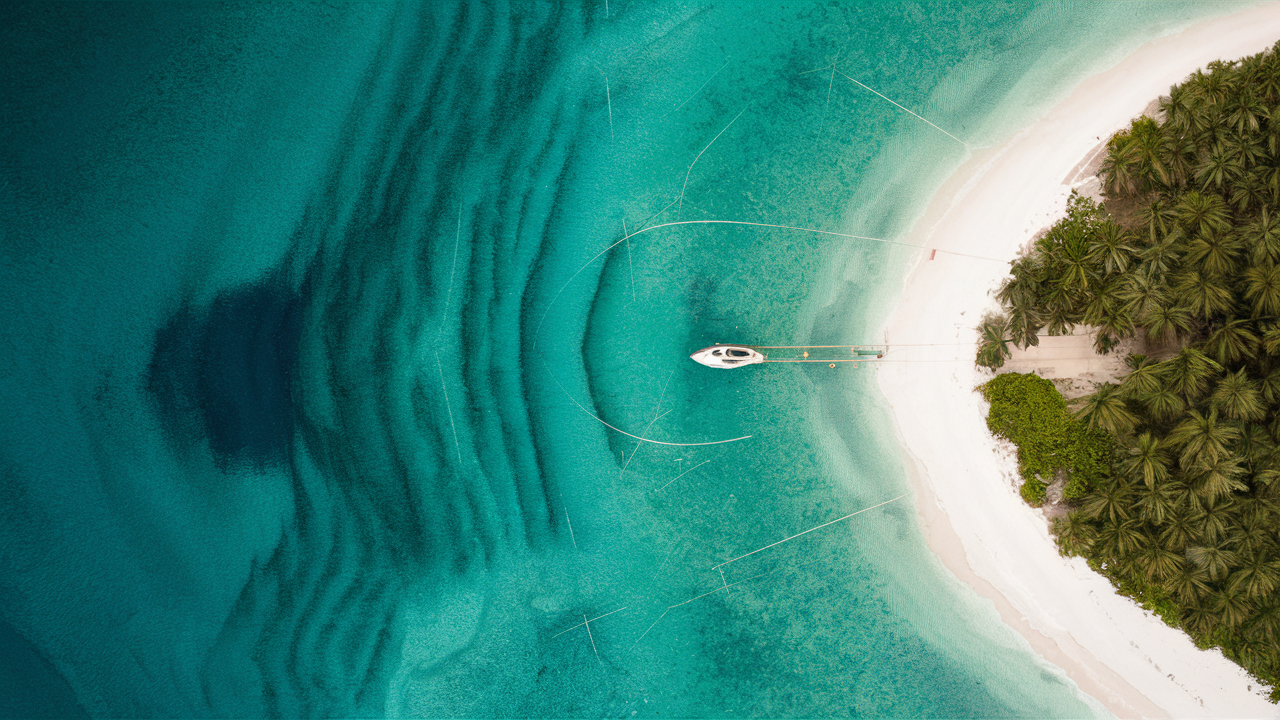
Tourism brings immense economic benefits, contributing 10% of global GDP. But sadly, local economies don’t always reap the full rewards of tourist spending. This phenomenon is called economic leakage.
As responsible travelers, it’s crucial we understand how tourism leakage happens so we can make informed decisions. Read on to learn what tourism leakage is, what causes it, and most importantly – how travelers can help keep money in local communities.
Table of Contents
What is Tourism Leakage?

Tourism leakage refers to money spent by tourists in a destination that leaks out or flows out of the local economy into foreign economies.
Instead of remaining in the visited country to circulate and strengthen the local economy, tourism revenue is lost offshore and benefits foreign companies and shareholders.
According to the UN’s Ocean Atlas, as little as 5% of money spent by tourists in developing nations remains in the local economy. The rest is lost to leakage.
Why Does Tourism Leakage Matter?
Tourism leakage directly counteracts the core economic benefits that destinations aim to reap from tourism.
Money flowing offshore means fewer local jobs created, weaker infrastructure development, and reduced economic prosperity for residents. It especially disadvantages developing countries.
To fully leverage tourism for poverty alleviation and sustainable growth, destinations must minimize leakage and keep money circulating locally.
Examples of Tourism Leakage
There are endless examples of how tourism dollars flow offshore, including:
- Booking accommodation owned by a foreign corporation
- Eating at a restaurant chain like McDonalds
- Buying imported food and beverages
- Using tour operators headquartered abroad
- Flying on a foreign-owned airline
In essence, money spent with multinational chains, imported goods and foreign-based companies often leaks out.
What Causes Tourism Leakage?
There are several key factors that drive tourism leakage:
Foreign Investment
Many destinations rely on foreign investment to develop tourism infrastructure like hotels, airports and attractions. Multinational hotel chains account for over 50% of hotel rooms in Africa.
Foreign-owned businesses repatriate profits to their shareholders abroad. This export leakage denies local reinvestment.
Importing Goods and Services
Destinations often import goods to meet tourist desires, from food and drink brands to luxury amenities. Importing results in import leakage.
Services like banking, insurance and transports may be sourced abroad. Staff like accountants may even be foreign imports.
All-Inclusive Resorts
All-inclusive resorts are notorious for leakage. Guests pay upfront and never need to spend money in the local economy for food, drinks or activities. Leakage approaches 80% in Caribbean resorts.
Foreign Ownership Along Supply Chains
Tourists rarely interact directly with the end provider. Foreign tour operators, travel agencies, airlines and other intermediaries control the supply chain. Money passes through multiple foreign hands before reaching local providers.
Types of Tourism Leakage
There are two major forms of leakage in travel and tourism:
Import leakage – When a destination must import goods and services to meet tourist demand, including food, drinks, equipment, banking services and more.
Export leakage – When foreign-owned businesses operating in a destination repatriate their profits to their country of ownership.
Both export and import leakage divert money offshore away from the local economy.
How Much Money is Lost to Tourism Leakage?
Unfortunately, significant portions of tourist spending leak out of local economies:
- Up to 80% in Caribbean all-inclusive resorts
- 70% in Thailand
- 55% in the Gambia
- 40% in India
The UN estimates up to 55% leakage in developing countries, and 40% globally.
The more a destination depends on imported goods to meet tourist desires, and foreign ownership of infrastructure, the higher the leakage.
Why Local Ownership Matters
When a local resident owns a business, the money earned stays within the community. They reinvest profits to grow the business, spend wages locally, and contribute to community development.
Foreign investors repatriate profits to their shareholders abroad. Though infrastructure may develop faster with foreign investment, the long-term benefits flow offshore.
Prioritizing local ownership across the tourism supply chain ensures money circulates locally, stimulating inclusive economic growth.
How Tourists Can Help Reduce Tourism Leakage
While the onus is on policymakers to develop a sustainable, locally-beneficial tourism sector, travelers play an important role too.
Here are 5 tips to reduce your personal tourism leakage:
1. Spend money at local businesses – Eat local cuisine at family restaurants, stay at locally owned hotels, take tours by community guides. Avoid spending at foreign chains.
2. Travel beyond hotspots – Venture beyond heavily touristed areas into small towns and communities where more tourism revenue stays local.
3. Buy local goods – Shop at local markets and artisan shops. Purchase locally made handicrafts and products.
4. Use local transit – Take buses, trains, tuk tuks and taxis instead of multinational rideshare apps and tour buses.
5. Ask questions – Ask who owns accommodations, restaurants and tour companies. Seek local options.
Making mindful decisions as a traveler supports grassroots businesses and reduces money lost offshore.

Ways Destinations Can Reduce Tourism Leakage
While travelers play a role, destinations must take a strategic approach to maximizing tourism’s local economic impact. Policies to reduce leakage include:
- Providing incentives and support to help locals develop tourism businesses
- Creating local supply chains and sourcing food, beverages and supplies from local producers
- Diversifying offerings beyond mass tourism to attract higher value travelers
- Marketing and promoting locally-owned tourism businesses
- Using tax revenues from tourism to strengthen infrastructure and communities
- Closely regulating foreign businesses, including profit repatriation and sourcing
- Collaborating across government, private sector and communities to maximize local benefits
With smart planning and policy, destinations can capture tourism dollars, stimulate broad-based economic growth, and deliver more value to residents.
Final Thoughts on Tourism Leakage
Economic leakage is an immense threat that prevents developing countries from harnessing tourism’s full potential.
While travelers play a role in reducing leakage, solving this complex issue ultimately requires leadership by government, industry and communities.
By better understanding the causes and consequences of tourism leakage, we as mindful travelers can advocate for and support local-first tourism. Demanding sustainable tourism ensures our adventures enrich rather than exploit destination communities.
How do you try to maximize your positive local economic impact when you travel? Share your tips and thoughts below!
What is tourism leakage?
Tourism leakage refers to money spent by tourists that flows out of the local economy into foreign economies, rather than remaining to benefit the local destination.
How does tourism leakage happen?
Leakage occurs when tourists spend money with foreign-owned businesses, imported goods and services, or on all-inclusive packages where money goes to international companies.
Why is tourism leakage problematic?
Leakage deprives local economies of money that could support jobs, infrastructure, and community development. It reduces tourism’s economic benefits.
What are the main types of tourism leakage?
The two main forms are import leakage, when goods are imported to meet tourist demand, and export leakage, when foreign companies repatriate profits.
How can travelers help reduce tourism leakage?
Ways to help include spending money at local businesses, avoiding foreign chains, traveling beyond hotspots, using local transit, and asking who owns tourism companies.
Related Posts
- 5 Advantages of Using an eSIM for Travel Abroad
- 8 Harmful Travel Clichés To Avoid
- Difference Between Travel and Tourism: Why We’re All Tourists
- Easy and Practical Sustainable Tourism Tips for Every Traveler
- Engaging With Cultures Respectfully: How to Avoid Cultural Appropriation in Traveling
- How to Climb Mapagala Fortress for Incredible Sigiriya Sunset Views
- Is It Time to Embrace Deep Travel? How to Foster Connection Through Mindful Tourism
- Rediscover Travel With Second City Tourism
- Responsible Wildlife Tourism: How to Support Animals Ethically When Traveling
- The Pros and Cons of Tourism: Examining the Complex Impacts
- What Not To Do in Sri Lanka: 22 Essential Tips for Respectful Travel
- What Not to Do in Iceland: 23 Tips for Respectful and Safe Travel
- What is Dark Tourism? Navigating Ethical Travel to Sites of Tragedy
- Why is Sustainable Tourism Important? Protecting People and Planet Through Mindful Travel
Charlotte Sao
Charlotte Sao is a seasoned SEO content writer specializing in travel blogging. With her expertise in crafting engaging, SEO-optimized content, Charlotte helps travel brands increase their online visibility and connect with their target audience. Passionate about exploring new destinations, she combines her love for travel with her skills in SEO to create compelling stories and informative guides that rank well on search engines and captivate readers.
Related Post
Avoid overtourism: visit these underrated places instead, responsible budget travel: how to explore the world on a budget ethically, how to avoid contributing to overtourism: 15 tips for sustainable travel, the ins and outs of travel privilege: a guide to understanding your place in the world, 2 thoughts on “what is economic leakage in tourism understanding how tourist dollars can leave local economies”.
- Pingback: Difference Between Travel and Tourism: Why We're All Tourists - ITMTrav: Travel Responsibly - Ontario & Worldwide Guides
- Pingback: The Pros and Cons of Tourism: Examining the Complex Impacts - ITMTrav: Travel Responsibly - Ontario & Worldwide Guides
Leave a Comment Cancel reply
Save my name, email, and website in this browser for the next time I comment.
Recent Post
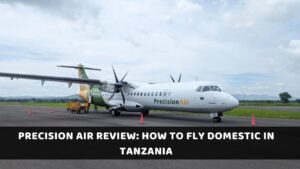
Soaring Over Tanzania: A Traveler’s Guide to Flying Domestic with Precision Air
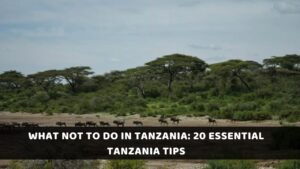
Unveiling Tanzania’s Hidden Gems: 20 Essential Travel Tips to Avoid Pitfalls

Discover the Magic of Stone Town: 14 Compelling Reasons to Visit This Enchanting Destination
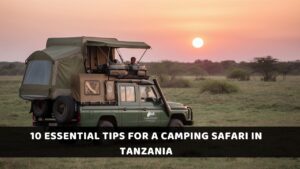
10 Essential Tips for an Unforgettable Camping Safari in Tanzania
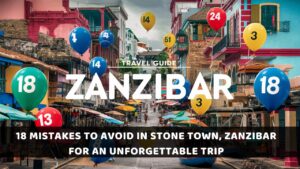
18 Mistakes to Avoid in Stone Town, Zanzibar for an Unforgettable Trip
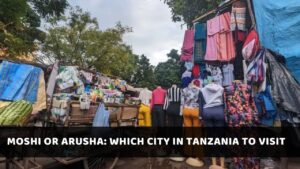
Should You Visit Moshi or Arusha in Tanzania? A Traveler’s Guide

8 Key Differences Between Guatemala and Belize For Planning Your Dream Trip
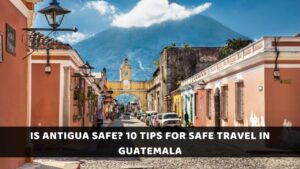
Is Antigua, Guatemala Safe for Travelers? 10 Essential Tips for a Secure Trip

The Ultimate Guide to Celebrating Day of the Dead in Mexico City
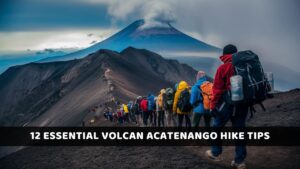
12 Essential Volcan Acatenango Hike Tips for an Unforgettable Adventure

Discover Paradise: Your Ultimate 1 Week Puerto Vallarta Itinerary
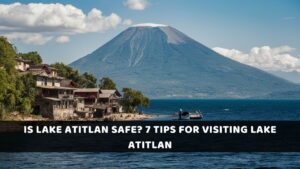
Is Lake Atitlan Safe? 7 Essential Tips for Visiting Guatemala’s Stunning Volcanic Lake

How to Take the Train from Fes to Marrakech like a Local

Exploring the Hidden Gem of Bhalil, Morocco

3 Best Sahara Desert Tours From Marrakech (+ What to Expect)

10 Compelling Reasons to Visit Morocco During the Winter Months

13 Essential Fes Travel Tips: Avoid These Common Mistakes in Morocco’s Cultural Capital

A Complete Guide to Spending 24 Hours in Chefchaouen, Morocco’s Blue Pearl

Discover the Wonders of the Dead Sea in Jordan: A Comprehensive Travel Guide

22 Essential Tips for Visiting Petra, Jordan

The Ultimate Guide to an Unforgettable Jordan Road Trip

The Ultimate Guide to Exploring Wadi Rum: 8 Essential Tips for an Unforgettable Adventure

Your Guide to Safe and Enjoyable Driving in Jordan

Exploring the Natural Wonders of Burntcoat Head Park in Nova Scotia

"Ready to make a difference? ITMTrav empowers you with the tools to minimize your travel footprint while maximizing positive experiences in Ontario and beyond.
Quick Links
- Get in touch
- Visit our blog
Reimagining travel means preventing tourism leakage
Destination marketing strategy + research and analysis + topic: sustainable tourism.

- Recent Posts
- World’s most sustainable city? Copenhagen and its impact on travellers - 5 December 2023
- Capital of the future? Valencia leaps ahead with sustainable ambitions - 28 November 2023
- How travel can meet carbon zero goals by 2030 - 17 October 2023
31 July 2020
3 comments(s), how much tourism revenue stays in your community.
Tourism, at its best, can make an immensely positive impact on your destination. It can help preserve local culture and traditions, protect the environment and provide jobs to residents. But how much tourism revenue directly rewards your community’s hard work? If too much revenue tends to leave, your organization might have some work ahead to stop tourism leakage by changing the business mix.
First, let’s recognize that traditional economic metrics are inadequate for today’s world. Destination marketing organizations (DMOs), politicians and other tourism stakeholders that lobby for tourism investments tend to cite familiar statistics like the number of jobs gained, the dollar value of the tourism industry, and the total number of visitors. These estimates often appear in reports and press releases. Sometimes they’re significant. But they only tell a slice of the story of tourism in your area and how your DMO’s activities impact those metrics.
Measuring tourism’s impact requires more specificity to address current challenges. To effectively manage your destination through recovery from COVID-19 and beyond, you’ll need to understand economic value as part of a system that goes beyond revenue. The system also includes social, cultural and environmental well-being. Tourism leakage reveals economic struggles that can greatly affect the whole picture.
Tourism leakage occurs when revenue generated by tourism is lost to outside economies. The cumulative effects of actions like buying an imported souvenir or staying in a foreign-owned hotel can be significant. Developing nations are particularly hard hit. In Fiji, it is estimated that 60% of the money earned through tourism ends up leaving the island nation. In another study , tourism leakage estimates range from 40% in India to 80% in the Caribbean.
This chart by beachmeter.com shows a breakdown of how tourism dollars are often distributed.
Holiday spots with high tourism leakage are left to absorb the negative effects of tourism and no way to pay for the damage. Tourism infrastructure and services need to be maintained. Often, the local environment is also left in a vulnerable position. In 2018, Maya Bay on Thailand’s Ko Phi Phi Leh island was closed to let its ecology recover from the damage caused by thousands of daily visitors. The closure of such a popular attraction is especially devastating in a place like Thailand, where tourism generates 11% of national GDP. At the same time, 70% of money spent by tourists leaves the country . Local tourism operators who perhaps already faced a reduced profit margin are left with even fewer opportunities.
People and places are not commodities. A healthy tourism industry will instead treat places as living entities. It will avoid giving residents and their local environments the bill for mass tourism. Forward-thinking places like New Zealand’s Bay of Plenty – a Destination Think client destination – lead the way with a regenerative approach that emphasizes human and ecological flourishing.
DMOs need new metrics to help them manage high-value tourism that benefits everyone. Places need to measure the net economic benefit to the community (accounting for tourism leakage). Beyond leakage, other key performance indicators include the local environmental cost, the global environmental cost (for example, assessing the carbon footprint per traveller dollar) and resident quality of life.
These metrics more accurately describe valuable tourism. Instead of attracting more visitors to raise more revenue, your destination can focus on reducing leakage to bring economic value without additional visitors.
Examine the business mix in your destination. How can your DMO adjust the mix to keep more value in your community? This is the way to help residents – your neighbours – live a better life in a place that flourishes.
Feature image credit: Photo by Jonathan delange on Unsplash
At Justice Tourism Foundation We believe that travel has the power to transform lives. We therefore promote holidays that aim to improve the lives of local people in communities in Uganda and contribute to reducing poverty. We work under principles of fair trade and sustainability using tourism to create equitable opportunities for local communities and to increase the social, economic and environmental benefits for host communities in support of many United Nations Sustainable Development Goals, including education, access to clean water, environmental conservation, gender equality, and the preservation of diverse and indigenous cultures while giving travelers the chance to explore Uganda through customized trips (tours). We want to see that part of your tourism dollars are benefitting the local communities at the tourism destinations – the people they meet, places travelers stay and ecosystems they visit. It is a big part of our decision making when we organize our trip series.
The world-wide challenge for accommodation and adventure tourism businesses are the high commissions they pay out to 3rd Party booking websites. This fact alone removes 18% to 30% from the bottom line and gone from the community. If travellers were aware of this, travel booking patterns may just change. What is rarely mentioned is that the prices of rooms are often lower on the actual website of the tourism business. And in many cases tourism businesses would beat the price listed on 3rd Party Booking websites because it is cheaper than paying out the commissions.
That’s a great observation, Greg. Booking direct always helps local businesses this way.
Submit a Comment Cancel reply
Your email address will not be published. Required fields are marked *
Save my name, email, and website in this browser for the next time I comment.
Submit Comment
RELATED POSTS

Don’t copy, be inspired: How Copenhagen became a green beacon of hope
Apr 30, 2024
“There are many routes to the future. There's not just one. Copenhagen is fantastic. It's a miracle. Don't copy. Be...
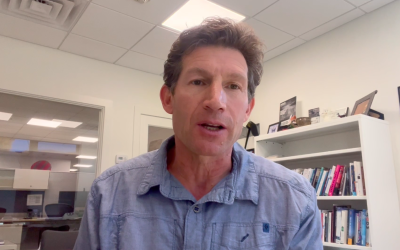
Corporate sustainability isn’t working: Here’s what the travel industry needs to do next
Mar 5, 2024
“You have a huge, powerful constituency that visits you. You can educate them and mobilize them, not to tell you not...

Cultivating connection: the role of Indigenous tourism in sustainability
Feb 20, 2024
“For me, the value, the sustainability and the value of Indigenous tourism is about my culture, my language, my...
You’ve found your partner for destination marketing
We work with the most innovative tourism boards in the world to create a vision for each of their destinations, solve business challenges and execute brilliant, integrated campaigns. The expertise we apply to that work is shared in the articles published here and in our DMO Matters newsletter.

Consent* Destination Think may store my data and contact me by email.*
Thank you! You will receive an email to confirm your subscription.
We value and respect your privacy. Click to read our privacy policy.
What is Economic Leakage in Tourism (& How to Prevent It)
Last Updated on October 4, 2023
Regions around the world use tourism to create jobs, as well as protect the natural environment and cultural heritage.
According to the U.N., tourism accounts for 10% of global GDP , and one in 10 people are employed in the sector. When looking at the pros and cons of tourism , this is one of the pros!
But the economic benefits of tourism don’t always trickle down to the right people. According to the U.N.’s Ocean Atlas, as little as 5$ of every 100$ spent by a tourist in a low or middle income country stays in the local economy.
This phenomenon of tourism dollars leaving the country they were spent in is called “economic leakage,” or “tourism leakage.”
Economic Leakage Explained
Import leakage versus export leakage, what causes economic leakage in tourism, how to reduce economic leakage in tourism, how can travelers help with tourism leakage, final thoughts: addressing tourism leakage.
Understanding leakage in tourism is important. Knowing what it is and why it happens can help regular tourists to make more informed choices when they travel, and it can help the tourism sector address the problem.
What is economic leakage in tourism?
Economic leakage, also known as “tourism leakage” is when revenue generated by tourism is lost to other countries’ economies. Instead, that revenue “leaks” out to other economies. Tourism leakage happens when tourist dollars go toward businesses and companies that aren’t local to the place being visited. In many countries around the world, foreign and international corporations may be the only entities that have the capital to invest in tourism facilities like hotels and resorts.
For example, many of the resorts operated in the Caribbean are actually owned by an American company, like Apple Leisure Group. When American travelers visit these resorts, much of the money they spend goes back to the US.
What is an example of leakage in tourism?
A simple example of tourism leakage is when a traveler books a stay in an all-inclusive resort that isn’t locally owned. Many resorts are owned by companies not based in the countries where those resorts operate. A 2022 report from the UNWTO, for example, found that “tourism leakage” amounts to an estimated 80% of all money spent by tourists in the Caribbean region. Another study found that tourism leakage in India may be around 40% .
Is economic leakage in tourism bad?
Yes, economic leakage in tourism is harmful. It means that a location or country is not reaping all of the economic benefits of tourism. Instead, those benefits are going to a foreign country. This can slow the economic growth of a region, which has a trickle-down effect on that region’s people and communities.
There are two main types of tourism leakage: import leakage and export leakage. Let’s unpack how these two types of economic leakage are different.
What is import leakage?
Import leakage is when a country spends money on imported products, brands, foods, or labour to meet the demands of visiting tourists. For example, a country might make Mirinda, but not Fanta. If that country decides to import Fanta for tourists – that’s import leakage.
What is export leakage?
Export leakage is when foreign investors or companies take tourism profits out of their operating locales, and bring those profits back to their home country. In this case, those profits benefit the home country’s economy.
There are several causes for tourism leakage.
The first, is the need to supply specific goods and services for tourists. Many countries, particularly island nations, import goods – Popular beverage brands, for example.
Infrastructure of a country or community will also factor into tourism leakage. If that place doesn’t have the needed infrastructure, or the resources to build it, they may depend on foreign companies or investors.
This is where multinational corporations (MNCs) come in. MNCs are large companies that operate in several countries. They are usually very powerful, and often, are based in wealthy nations like the USA.
Hotel chains like Hilton, and fast food restaurants like McDonalds are MNCs. When spending money with an MNC, most of that money will leave the country you’re in and go back to wherever the MNC is based.
Governments will often try to attract foreign investment (including by MNCs) as a way to kickstart tourism development. Often, tax structures are used to incentivize foreign investors. Taxes will be waived, which yes, attracts investors, but ultimately means less tax dollars for a country to benefit from.
The last cause is related to labour. When it’s “high season” (the busiest time of year) for a tourism destination, there’s often temporary job openings that need to be filled. This attracts foreign workers who come for the season before returning to their home country. Ultimately, the dollars they earn go home with them.
Ways to Reduce Tourism Leakage
By addressing tourism leakage, we can ensure local businesses and workers get to benefit from the economic gains that tourism brings.
To reduce tourism leakage, governments, DMOs (destination management organizations), tourism operators, travel companies, residents, and visitors need to work together.
Let’s break down how both the tourism industry, and individual travelers can make a difference.
While travelers themselves can help bring awareness to tourism leakage and travel in a way that minimizes it, the real onus for addressing it is on governments and tourism management entities.
When a tourism region is managed well, it’s possible to maximize the economic benefits so that those benefits stay in the community. Here are some of the ways that this can be done:
- Tax foreign investors (including MNCs) and incentivize development by local investors.
- Support and promote the development of locally-owned accommodation providers.
- Develop initiatives that favour the local workforce and local community. For example, incentivize hotels to use locally produced foods and products.
- Avoid overtourism through marketing, leveraging a tourist tax, and other initiatives.
- Promote niche tourism in order to attract specific types of travelers.
- Focus destination marketing on promoting businesses that are locally owned and operated.
These are some of the solutions that can help to reduce tourism leakage. They are long-term strategic changes, and the results of them aren’t obvious right away.
But ultimately, it’s in the interest of a tourism region to move towards a tourism model that favours keeping money in the country and community, because it will benefit that country’s economic development.
Many travelers aren’t aware of economic leakage in tourism. In my experience traveling, it can be tough to spot and understand, because on the surface, it appears that your tourist dollars are going to the community that you visit – when in reality, much of that money is leaking out.
Here are ways that travelers can help to reduce economic leakage in tourism.
- Be intentional about where you spend your tourism dollars. Whenever possible, spend your money on locally owned and operated hotels, tour operators, and businesses.
- Go for small-group tours that work with local communities and vendors, and include experiences that focus on cultural learning.
- Skip enclave tourism. This type of tourism encourages visitors to stay in one small geographic area and engage with a limited number of businesses. All-inclusive resorts (like the ones found in Puerto Vallarta ) are an example of enclave tourism.
- Avoid traveling to tourism hotspots that are experiencing overtourism, or practice second city tourism .
- Practice responsible wildlife tourism, and be mindful of sustainable tourism practices.
- Learn how to be a responsible tourist and follow the best practices for responsible tourism.
- Research and ask questions! Sometimes it isn’t clear whether or not a business, hotel, or tour operator is locally owned, which makes it difficult to figure out where your money will go. Send a quick email to find out.
In a perfect world, all the money that we spend when we travel will go toward that local economy. But unfortunately, this isn’t the case.
As travelers, we can help address this issue by amplifying it. For example, I try to tell others what tourism leakage is, why they should avoid it, and how. And of course, all of us should take whatever steps we can in our own travels to reduce it too.
Making choices that support the local economy versus tourism leakage sends a message that there is demand for this in the tourism industry. Let’s let our tourism dollars do the talking!
More tips for mindful travel:
- Why is Sustainable Tourism Important?
- How to Avoid Cultural Appropriation in Travel
- Avoid Overtourism: Visit These Underrated Travel Destinations Instead
Your Guide to Responsible Budget Travel
Erin has been traveling for over a decade, both solo, and with her partner. She’s now traveled to countries across 6 continents, and has lived in 2 countries abroad. Erin also hosts the travel podcast, Curious Tourism , where she interviews travel industry thought leaders and experts about responsible tourism. Learn more about Erin, and get in touch with her, here .
Related Posts
Avoid overtourism: visit these underrated places instead, your guide to unpacking travel privilege, how to avoid contributing to overtourism.
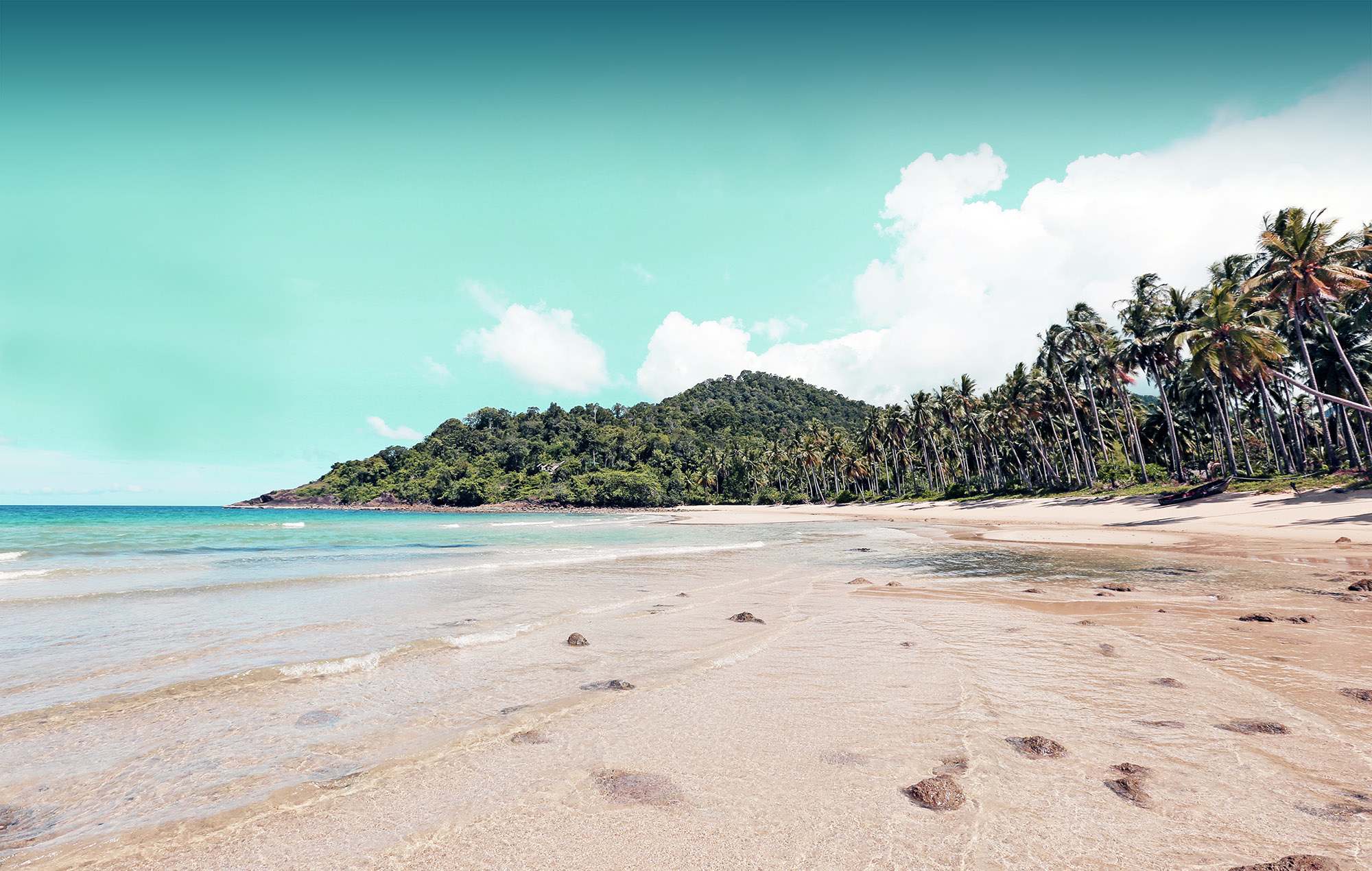
Tourism Leakage – this is how little your money contributes locally!
Where does your money spent on traveling go.
First time I opened my Tourism Management course book back in my university days, one chart especially stood out to me. This was the “Tourism Leakage” chart, which showed the average distribution of the money spent on a holiday. When you analyse the individual elements of the chart, there are no big surprises. But the visual overview communicates a clear message: The tourism destination itself receives a surprisingly small portion of the economic benefits from your total holiday expenditure.
The chart looks something like this:
Let’s walk through the elements of this tourism leakage chart.
Blue section: A lot of the travel expenses you have before the actual trip such as airfare, insurances, and travel agency profits will benefit international and outbound companies not directly related to the country of your travel destination.
Rose-colored section: Within the country you are visiting, there are expenses such as visa fees, inbound travel agencies, and transportation providers. These might benefit the national economy, but not have any direct positive effect on your holiday destination. They might also be international companies partly with international staff, in which case more leakage occurs on a national level.
Green section: Among your expenses at the destination is the proportion of the accommodation cost that stays with the hotel, the money you spend inside hotel, and at the destination such as shopping, eating, activities, rental, transportation, and guided tours. If you book these products and services directly from the supplier, and if the suppliers are local, chances are that more economic value will stay locally. Especially in low resource communities or destinations with large gaps between rich and poor, your money are more likely to benefit a small local elite or foreign companies because these are usually the only ones who can provide tourism products that live up to international standards. A hotel belonging to an international hotel chain will send profits back to company headquarters and they will be more likely to employ internationally trained and non-local staff. If you buy and consume imported products and brands the import cost obviously leaks out of the local economy also.
Dark section: Needless to say, the size of the tourism leakage depends on the individual case and there are a lot of variables and exceptions. But there has been done research on the area. According to the UNEP (United Nations Environment Programme), for every 100 $ spent by a tourist on a holiday to a developing country, only 5$ remain in the host community. That’s a tourism leakage of 95%. Another report quoted on the same web page says that…
“70% of all money spent by tourists ended up leaving Thailand (via foreign-owned tour operators, airlines, hotels, imported drinks and food, etc.)”
One can only wonder then, how much of the remaining 30% will then stay in the host community?
Why is tourism leakage a problem?
If you made it this far, you might have quietly wondered in the back of your mind, “But is leakage so bad”? “Isn’t it just the same as other consumer products that involve a large number of stakeholders, agents, producers, buyers, whole-sellers, workers, and a mixture of raw materials from near and far?”
Good questions. I was myself wondering just the same when I analyzed the chart. Tourism has the beautiful potential to create local jobs, create cultural pride, share local knowledge and customs, give unique experiences to visitors, and to contribute economically to small local businesses and host families. How many of these benefits will materialize if you stay at an international hotel with foreign staff and management, drink Coke and Heineken, eat McDonalds, and stay at private beaches not welcoming local residents? Not much.
And why is this important? Because it is usually the host community that has to deal with all the nuisances and potential problems related to tourism. These could be…
- Price inflation – everyday goods and services become more expensive caused by tourism development, but local salaries might not increase proportionally.
- Water shortage – tourists use a significantly more water than local residents. This can be a big problem in areas of freshwater shortage. For example swimming pools, bath tubs, air-conditioning, frequent washing of bed sheets and towels, irrigation of gardens, and activities such as golf require great amounts of water.
- Waste management – tourists use and require a lot of single-use products such as shampoos and lotions, slippers, chemicals from daily cleaning of rooms and common hotel areas, batteries etc. At the same time high seasons can attract a great number of tourists to a relative small area creating more waste along with increased pressure on the infrastructure.
- Space issues – your favourite beach could be full of tourists or even worse, it could be privatized, so only the paying tourists get the best beach spots.
- Cultural issues – in a tourism destination where local customs, tastes, and socio-cultural and political sensitivities take a backseat to a hedonistic and bulldozing “tourist culture”, tourists are likely to cause annoyance, worry, and even contempt among local residents. Interestingly, but perhaps not surprisingly, tourists sometimes behave worse on holiday, as they also take a vacation from their normal responsibilities and restrictions from back home.
- Noise issues – tourists don’t have to work the next day, so every night is a new opportunity for a party.
What can you do to make your money benefit the society in which you are traveling?
To make sure your holiday expenses benefit the destination and the communities you are visiting, we want to make a list of things you can do. Remember to follow Beachmeter.com, so you don’t miss this list. If you have any suggestions to add to the list, please feel free to contact us.
Interested in reading more about tourism leakage?
Here are some links for further reading to those interested: Problems in Paradise – article by Chris Brazier co-editor of New Internationalist . This article touches not only upon tourism leakage, but also a number of the challenges and problems with tourism development in general.
Share with family, friends, and the world:

Related Articles

Exploring the BEST Diving Spots in Thailand

9 Ways Travel Will Change After The Covid-19 Pandemic
23 comments leave a comment.
[…] On top of that, there is the problem of what tourism researchers call “leakage”. For an in-depth exploration of tourism leakage, see our post “Tourism Leakage – This is how little your money contributes locally!” […]
Very informative and interesting article about tourism leakage. I’ll have a look at the related links. Thanks Ellen
[…] We investigate tourism leakage and see how little of your holiday expenses actually remain to benefit the local communities of your travel destinations. […]
[…] are much more environmentally and socially sustainable than their bigger counterparts. For example, “leakage” is not a big issue in small family-owned hotels. Compared to big hotels and hotel groups, small accommodation providers are more likely […]
[…] will minimize tourism leakage by supporting the local community directly. You will interact with your local host or seller, and […]
One of the topics, which I try to explain to my students. They only see the total numbers, which get published everywhere. Tourism is a billion dollar industry and who actually benefits. In Thailand only 15% of the total income stays in the country… simply not enough, when we go down the list from above… waste, water shortage, accessibility to beaches for locals, wages, etc. The list could go on forever. Truly an eye-opener…
Yes, I agree. I also had “wow!”-moment when the tourism leakage issue was first introduced to me. What it tells me is that the majority of tourists basically don’t travel to get challenged and inspired by new ways of doing things. It’s rather a question of convenience and comfort where food, service, culture etc. should not be too different from what they are used to, which results in the import of foreign staff, products, food, and services.
[…] Most of the money spent for travel doesn’t stay in the local economy–it goes to airlines and hotel and restaurant chains owned by people outside of the community. […]
[…] from having me there? These questions really struck me after our Hawaii visit. I found this great graphic about tourism leakage, showing only about 10% of your holiday money actually gets in to […]
May i know when was this published? and who’s the author of this article?
Hi Bettina. Please check your personal inbox. Have a joyful day.
could you message me the date, and author, and qualifications of this article?
please share with me also as i would love to acknowledge you on my research about tourism leakages.
P.S Medoh from Botswana,southren African
Hi Medoh. You’ll receive an email shortly 😉
same here please share with me too. This is one of the best article i read out.
This is a very powerful and informative stuff about tourism leakage.
Hi! I would love to know the author of this article aswell and the date is was published. This is very informative article, thank you!
Hi Sini and thanks for your interest. You will receive an email with the details of the article.
thank you Study in malaysia
[…] read this article on tourism leakage (not to be confused with Montezuma’s revenge) if you don’t believe […]
[…] We get it, travel is part of a lifestyle now. It is no longer a luxury, but rather a necessity to live your best life, and of course, to be able to geotag your photos on Instagram (Admit it. Our team here is guilty of it too). However, with travel there can be a large margin of tourism leakage where less than 10% of your hard earned money actually goes back to the local community. […]
[…] evenly-spread economic boost without the devastating cultural and environmental impacts and leakage of Big […]
[…] hotel chains. Most of the profits made by these get siphoned out of the country, which is called economic leakage in […]
[…] you know that for every $100 spent by tourists in developing countries, the local economy only sees about $5? It’s time to change […]
[…] your tourist dollar to causes you support- whatever choice that might be. You can also read up on tourism leakage and why it is important to keep your tourist dollar within the local […]
[…] Leakage rates range from around 40% in India to 80% in Mauritius according to 2011 research published by the German development agency GIZ. In Thailand, the world’s ninth largest tourist destination, an estimated 70% of money leaves the country through foreign-owned tour operators, airlines, hotels, imported drinks and food. […]
As you clearly indicate in your article, there is a large issue to resolve which provides the basis for any social and ecological sustainability in any destination.
ECONOMICAL sustainability.
Unfortunately, this is not a given and especially in developing countries causes issues as you correctly described in your article.
Today, Hospitality and Tourism providers are giving away 60% to 80% of their profits & the customer ownership and data to no longer sustainable traditional value chains (i.e. collapse of Thomas Cook) or to market-dominating digital value chains (i.e. booking.com). This is not sustainable and needs to be fixed to really start going about ecological and social sustainability tourism development.
As a social enterprise, we focus on this with our public-private partnership & freemium business model.
We democratize technology and make it inclusively available for all the emerging, small, medium and independent hospitality and tourism businesses in a destination.
We keep more tourism spend in the destination and gain back control of their visibility, digital presence, reputation, communication, and distribution.
Hello I cannot find the report from the UN that you cite. Do you have the link and could you please share it with me? Thank you!!
Hi Elena. The cited article appears to have been removed by the UN. So far, we haven’t been able to locate it. This page from Oceansatlas seems to use the same study though.
hi! I am doing a research on tourism impacts of Thailand’s economy. Would you be able to send me the author’s name and the date is was published? Thank you so much!!
No problem. Will send you an email with the information ☀️
[…] Tourism leakage is when revenue is lost from tourism to other countries’ economies. It means the attempt to calculate the percentage of expenses contribute to the local economy of the destination you are visit and what percentage leak to other outside economies. For example, your transportation, accommodation, food and tour costs all go toward your vacation budget. Tourism leakage breaks down those numbers and shows just exactly who is really benefiting from your spending. […]
[…] Uzbekistan.The dominance in tourism of large chains, resorts, and theme parks is a major source of tourism leakage, which is the phenomenon in which traveler spending ends up “leaking” out of the country they […]
[…] The phenomenon of tourism dollars ending up outside the destination country due to foreign ownership is called “tourism leakage.” […]
I would also love to know the author of this article and the date it was published. I hope I am not late to subscribe you thanks a lot.. This is really great.
[…] chart by beachmeter.com shows a breakdown of how tourism dollars are often […]
[…] quando falamos de troca, falamos de conversão, mudança, transformação. Segundo este artigo*, também apresentado pelo Janelas Abertas, estudos mostram que a cada 100 USD gastos por um […]
[…] On my next trans-Africa trip, I want to take up the dozens of offers from locals that we are all too quick to decline for our pre-booked ‘safari’. In doing so I hope to form a deeper collaboration with the local guides rather than being a one-off customer to a large multinational tour company. I want to choose where my money goes rather than leave only 10% left for the local communities. […]
I would also love to know the author of this article
Author: Peter Berg Schmidt Publishing date: April 14, 2015
[…] locals miss out on the chance to enjoy benefits-they leak out of the local economy a term known as leakage. The environmental impacts of tourism on local communities include noise and air pollution, […]
I’d like to cite this article for an essay on global tourism. What’s the name of the author and publication date?
[…] 2014: Bali’s Water Crisis. University of Notre Dame, science.nd.edu.pl [dostęp 16.12.2021]. [10] Beach Meter: Tourism Leakage – this is how little your money contributes locally! [dostęp […]
[…] Ile pieniędzy z turystyki trafia tak naprawdę do lokalnej społeczności? Pomocny artykuł i grafika do zobaczenia tutaj. […]
[…] with fewer resources are the hardest hit. The travel industry on exacerbates this as up to 90% cash spent on traveling to these countries ends up in the pockets of big business that is outside of the very […]
[…] While it may be tempting to book your stay at an All Inclusive resort, I guarantee you that most of the larger resorts and accommodations are owned by massive Western hospitality corporations and your dollars aren’t circulating into the local economy like you think it is and instead goes back to mostly American, sometimes European conglomerates; a phenomenon known as Tourism Leakage. […]
Leave a Comment Cancel reply
7 of the biggest mistakes tourists make visiting national parks, according to empty-nesters who have been to all 63 of them
- Matt and Karen Smith have been to 63 US national parks — some multiple times.
- They set out with a goal to visit every park in 2010 after their youngest child went to college.
- Here are the biggest mistakes the Smiths have seen tourists make at national parks over the years.

Matt and Karen Smith know a thing or two about getting the most out of a national park visit.
After their youngest child went to college, the couple, who met at a university in Kansas and are now based in Seattle, quit their jobs in 2010 when they realized they could finally travel freely.
"When we moved to Seattle, we met another couple named Bob and Sue," Karen, 63, said. "They would take their family to the national parks. That was all new to us. We weren't national park people, so they inspired us to start."
Matt, 63, said they were "fortunate" to have enough savings to spend over a year visiting every major US national park . Throughout their travels, they wrote emails to Bob and Sue that they eventually compiled into a book titled "Dear Bob and Sue."
Nowadays, Matt and Karen regularly post about their national park experiences on Instagram, where they have over 246,000 followers, and discuss them in their podcast.
The Smiths recently spoke with Business Insider to share the biggest mistakes they've made themselves or seen people make when visiting national parks — and how to avoid them.
Just because it is summer, it doesn't mean conditions in mountainous national parks are ideal.
According to Matt, one of the biggest mistakes he sees people make when planning their national parks visits is not putting enough thought into how the weather at their destination may differ from where they are.
"It's not the season where you are. It's the season where you're going," he said. In the Midwest, for example, he said it gets decently warm by early June, so many people assume that means conditions are perfect up in mountainous national parks like Glacier National Park .
"Some of the mountains are still under snow," he said, adding that visitors have to be "precise" in their planning about which mountain they want to visit and find out whether it is safe to do so.
Many people make the mistake of not getting permits early.
Matt and Karen say they've noticed an increase in the popularity of tourism in the national parks since they set out on their journey to visit all of them in 2010.
They attribute it to the "rise of social media" and how easy it is to share eye-catching photographs nowadays. "People see how incredible these places are and it makes them say, 'I want to go there,'" Karen said.
With the surge in popularity, the couple says people underestimate how far in advance they should start obtaining necessary documents for their visit.
"You have to plan way ahead because some of the permits that you have to get, you almost have to get a year ahead of time," Matt said.
Not checking the national park's website can lead to disappointment or unnecessary risks.
Karen and Matt always advise keeping an eye on the national park's website when planning a visit.
"We literally say check it three months before you go, check it a week before you go, check it the day before," Matt said.
While it wasn't at a national park, the couple said they had a "situation" a few years back when hiking in the wilderness and had a close call with a "life-endangering flash flood" because they hadn't checked the park's website.
"We weren't looking at the website, and we almost hiked into it," Matt said. While that is an extreme scenario, the couple says it's also important to get ahead of any situations.
Thinking the national parks are like Disneyland is common — and dangerous.
Theme parks and national parks may share a word but they couldn't be more different, according to the Smiths.
"People think the national parks are Disneyland and I think people also have a false sense of security, of safety, because nothing bad happens at Disneyland," Karen said.
Wildlife encounters and hiking accidents can happen. The Smiths say that it's important to realize the real hazards.
"This is not Disney, and a lot of bad things happen to people in the parks because they are unaware of the dangers," Karen added.
Hiking essentials can be lifesavers and can help keep the national parks clean.
One of the many reasons that the Smiths love visiting the national parks is because they are avid hikers. Being hikers, they are well-versed in the "10 essentials" that the NPS advises any visitor to take with them when exploring a national park, including navigation tools, sun protection, and first-aid supplies.
Still, they've seen many tourists make the mistake of venturing into parks without the essentials in tow. In Death Valley , for example, Karen said they can't count "how many times" they've encountered other visitors without water or sun protection.
"I don't think people understand how dangerous that is," Matt added.
On top of the "10 essentials," Matt and Karen also say people often make the mistake of not taking WAG bags (a bag used to transport human waste of of a wilderness area) and instead resort to going outdoors.
"A lot of people feel like, 'Well it's the wilderness, I'm just going to go out of sight,'" Matt said. "But here's the problem: in some places that are so popular, the amount of human waste really builds up. That's a bad thing."
Just because there are bears, it doesn't necessarily mean you need bear spray.
The NPS recommends that tourists carry bear spray , but only in certain parks, which Karen and Matt say not everyone realizes.
"There's actually a really easy way to remember it. If the park has grizzly bears, you need bear spray," Karen said. "The parks that have the black bears, you don't need bear spray."
If bear spray is recommended, ensuring it is easily accessible is crucial. "If you come upon a bear and it's zipped inside your backpack, you're never gonna have time to take your backpack off and unzip it," Karen said.
"A lot of times, we literally carry it in our hands," Matt added.
Doing too much in a national park can lead to "activity fatigue" and a bad experience.
The US is home to expansive national parks like Wrangell–St. Elias in Alaska, which is 13.2 million acres, and Yellowstone, which is over 2 million acres.
It is impossible to see everything worth seeing in one visit. But that doesn't stop people from trying, which the Smiths say isn't worth it.
"People get excited to go to the national parks, and they overplan," Matt said. "They feel like, 'OK, it's the only time I'm ever gonna go to Yellowstone, we got to get it all in. But, you know, you have the activity fatigue and it can turn into a bad experience."
Ultimately, Karen said people feel a lot of "pressure" to do the most because of all the money and vacation days it often requires to visit national parks. But the best thing to do is to take a step back, she said.
"It's probably better to do a few things really well than try to get everything done on your list," Matt added.
- Main content
Destroyed by cyclones, impacted by climate change and neglected by foreign owners – these abandoned island resorts are now an eyesore
A pool lined with green sludge, rotting roofs and termite infested buildings – this derelict island resort has become a sad tourist attraction for all the wrong reasons, and it's not an isolated case.
At least half a dozen resorts along the Queensland coast have fallen to a similar fate.
In the heart of tropical Far North Queensland, the picturesque Double Island was once a thriving hub for holiday-makers including former Hollywood power couple Brad Pitt and Jennifer Aniston.
The island resort, 30 minutes north of Cairns, even built a gym for actor Keanu Reeves, so frequent were his stays.
But the resort has long been in a state of disrepair, with rotting roofs punctured by falling coconuts and green sludge lining the bottom of the once sparkling pool.
Brad Madgwick offers guided kayaking tours to the island, and recently incorporated the island's decay into his regular marine-life spotting adventures.
"We've always walked the shorelines looking for wildlife, but in the last few years, we have been given permission to go through the resort," Mr Madgwick said.
"The coconuts have taken a toll and the termites are having a good feed, it's sad really because it used to be a very glamorous resort back in the day."
The derelict state of the resort — safari-style tents covered in mould are dotted throughout — is shaping up to be one of the biggest legal battles ever held over an island in Australia.
The Queensland Government's Department of Resources will attempt to strip Hong Kong based billionaire Benny Wu of the island's lease in the Land Court in Cairns within weeks.
Mr Wu's Fortune Island Holding's is accused of non-compliance for failing to bring the facilities up to scratch and open the island to the public.
The day can't come soon enough for some local Palm Cove business owners, although opinions vary about what should happen with the island, if the state government is successful in its proceedings.
"When it was taken over in 2012, it was a thriving business," said local businessman Tony Richards, who would like to see a resort rebuilt.
"Nothing has been done to it since then. It's a complete bulldoze job."
The ABC has contacted Mr Wu for comment.
Paradise lost
Across the Great Barrier Reef, cyclones and neglect have left half a dozen island resorts shuttered and abandoned, with ruined infrastructure and damaged environments.
Brampton Island Resort, off Mackay, was a jewel in Queensland's tourism crown until it was bought by United Petroleum in 2010 for $5.9 million, its ocean side pool now filled with sand.
Lindeman Island in the Whitsundays, once famed for being the first Club Med in Australia, has sat in ruins since it was pummelled by Cyclone Yasi in 2011.
The Singaporean company, Well Start, has since bought the island and pledged to restore it.
Resorts on South Molle and Hook Island have also been closed for years.
The 1980s party paradise, Great Keppel (Woppa) Island off the central Queensland coast, has been laying in ruin for 15 years, with the Queensland government recently announcing a $30 million master plan including provisions for an eco-resort , new sewage system and conservation areas.
Meanwhile, the beleaguered Dunk Island resort off the coast of Far North Queensland, was also destroyed by Cyclone Yasi in 2011.
There are plans to open "glamping" style accommodation on the island within months, following billionaire Annie Cannon-Brook's purchase in 2022.
Professor Daniel Gschwind, from Griffith University's Institute for Tourism, said abandoned and closed resorts not only had an impact on the Great Barrier Reef's reputation, but Australia's broader tourism brand.
"Globally, the Great Barrier Reef is recognised as an outstanding asset, it's World Heritage listed, which in itself draws a lot of attention," Professor Gshwind said.
"The way Australia manages that asset and presents the asset to visitors is absolutely, critically important for our global reputation."
He said island resorts helped to bring in billions of tourism dollars each year and there needed to be an "expectation that lease holders fulfil their obligations".
However, he said the high cost of maintaining as well as accessing the resorts by plane or barge was impacting on owners to turn a profit, as well as skyrocketing insurance premiums.
"So there are great obstacles to overcome, but the benefit and the value of those islands as a tourism destination really can't be overstated."
Parliamentary inquiry into Queensland islands
Queensland's Transport and Resources Committee held a parliamentary inquiry examining the economic and regulatory frameworks for Queensland's island resorts, tabling a report just over a year ago.
Eighteen recommendations were made to the state government, including cancelling the leases of developers who let the resorts fall to rack and ruin.
Several of the submissions raised concerns about foreign ownership, as well as the impact of climate change, including intense cyclones, on resort infrastructure.
Professor Tim Harcourt, chief economist at the Institute for Public Policy and Governance at the University of Technology Sydney said buying up tropical islands could be seen by some international companies as an attractive proposition.
"They've got to get their money out and they're going to put it somewhere, and buying land is the easiest thing to do," Professor Harcourt said.
He also noted the longevity and success stories of the Hamilton and Hayman Island resorts in the Whitsundays.
The Andrew Forrest-owned Lizard Island, off Cooktown in Far North Queensland has been rebuilt twice due to successive cyclones, and is enjoying strong occupancy numbers.
Orpheus Island and Pelorus Island north of Townsville have also undergone extensive renovations.
Back on Double Island, Mr Madgwick said he would like to see the island returned to its natural splendour.
"I would love to see the island turned into a national park, with a communal kitchen, maybe a caretaker on the island, and to open it up to camping," Mr Madgwick said.
"It's a beautiful island and it should belong to the people."
- X (formerly Twitter)
Related Stories
Former party paradise great keppel island a step closer to new 'glory' with plans for eco-resort and glamping.
- Brampton Island
- Climate Change
- Dunk Island
- Great Keppel Island
- Lindeman Island
- South Molle
- Travel Health and Safety
- Travel and Tourism (Lifestyle and Leisure)

IMAGES
VIDEO
COMMENTS
'Tourism Leakage' is not a term often heard in coffee shop discussions about sustainable travel, but it is a common topic of research in travel academia, and alongside the carbon impact of travel, it is perhaps the single biggest issue in the tourism industry today. The phrase is used to describe the money that is spent by a tourist in any ...
But tourism needn't be leaky or destructive. Here's are five ways to increase the good your holiday can do this summer, put money in local people 's hands, and take the pressure off ...
What is Tourism Leakage? In the study of tourism, tourism leakage is the way in which revenue generated by tourism is lost to other countries' economies. Leakage may be so significant in some developing countries that it partially neutralizes the money generated by tourism. In this article we will explore what contributes to tourism leakage ...
Tourism leakage is the idea that, of all the money you spend on a holiday, surprisingly little ends up in the pockets of the community you visit. Instead - for a number of reasons - it ends up 'leaking' out. From profits distributed to foreign companies (like airlines or resorts), to foreign imports to meet tourism demand, the actual ...
Tourism leakage is an issue all destinations have to deal with. When not addressed, tourism income is drained out of the local community, preventing its economic, social and environmental development. In this article, we have presented seven initiatives to fight back economic leakage in tourism: Support local suppliers; Attract conscious travelers
What is tourism leakage? There are two types of tourism leakage: import and export economic leakage. Leakage is the highest in developing nations, which are exactly the countries that need your ...
Tourism leakage causes inequality. First of all, tourism leakage is unethical because it causes inequality. According to the UN's Ocean Atlas, of each $100 spent by a tourist from a developed nation, only around $5 actually stays in the local economy of a developing country destination. There are two main sources of tourism leakage which are ...
Economic leakage is a major problem in the tourism industry. Destinations develop and grow their tourism industries with high hopes of making a significant income from the various tourism-associated activities. However, in many destinations, this is simply not the case. I have seen economic leakage first-hand throughout almost all of my travels.
Economic leakage occurs in many industries and sectors, but it is a critical issue for the tourism industry. It takes place when revenues from its economic activities are unavailable for reinvestment or for consumption of goods and services within the same destination. Although tourism-generated income is abundant, the economic resources ...
Critics of global tourism argue that it leaves insignificant revenue in destinations (Mbaiwa 2005) and as a result is a poor development choice.Mitchell and Ashley are of the opinion that leakage pessimists confuse the matter using unclear thinking and poor arithmetics to generate confusing propositions regarding the leakage and how to reduce it through policy interventions.
The important role that tourism will play in the recovery of national economies and global trade has been highlighted in the 2022 edition of the World Economic Situation and Prospects (WESP) report by the United Nations. ... noting for example that that "tourism leakage" amounts to an estimated 80% of all money spent by tourists in the ...
Tourism leakage happens when the money you spend on vacation benefits global companies instead of the local economy. This means less support for local businesses and fewer jobs for residents. Import leakage is where tourists' demand for home-like products causes money to flow out through imports, while export leakage sees profits from tourism ...
Tourism leakage occurs when money spent on travel doesn't go to the host country, but instead to corporations based outside the country. Fodor's provides expert travel content worth exploring so ...
Leakage effect. In the study of tourism, the leakage is the way in which revenue generated by tourism is lost to other countries' economies. [1] Leakage may be so significant in some developing countries that it partially neutralizes the money generated by tourism.
Leakage in the tourism industry is an economic concept. Now, if you would have told 20-year-old me, as I decided to quit my economic master's program choosing instead to pack my bags and hit the road, that I would be knee-deep in economic concepts in the tourism industry 13 years later, I would have rolled my eyes and kept driving.
Tourism leakage refers to money spent by tourists in a destination that leaks out or flows out of the local economy into foreign economies. Instead of remaining in the visited country to circulate and strengthen the local economy, tourism revenue is lost offshore and benefits foreign companies and shareholders.
A V Krishna Chaitanya is a research scholar in the Department of Tourism Studies at Pondicherry University, focusing mainly on Tourism economics. The research of Chaitanya is mainly centered on the economic aspects of the tourism industry, which include the economic impact of tourism, tourism demand and supply analysis, and the relationship between tourism and local economic development.
Tourism leakage reveals economic struggles that can greatly affect the whole picture. Tourism leakage occurs when revenue generated by tourism is lost to outside economies. The cumulative effects of actions like buying an imported souvenir or staying in a foreign-owned hotel can be significant. Developing nations are particularly hard hit.
What Causes Economic Leakage in Tourism. There are several causes for tourism leakage. The first, is the need to supply specific goods and services for tourists. Many countries, particularly island nations, import goods - Popular beverage brands, for example. Infrastructure of a country or community will also factor into tourism leakage.
Tourism leakage happens when money generated by a destination's hospitality industry cycles back to another economy - typically, one in the Global North. This occurs when businesses like hotels, transportation operators and vendors are foreign-owned. The most obvious example is an internationally-owned chain hotel or resort.
The ATTA found that it takes four adventure travel tourists to generate $10,000 USD for a local economy. The report also found you would need a full 96 cruise tourists to generate that same sum. Developing countries see particularly large leakage, as outside interests dominate tourism. A 2014 UNWTO report puts leakage at "70% in Thailand and 80 ...
From here, Section IV, "Tourism Leakage Patterns", then explores the nature of tourism cluster leakages and the forms they may take. Then Section V, "New Directions", provides a case study of applying the cluster logic in Brazil's northeastern states, a troubled economic region attempting to implement competitiveness strategy. ...
Tourism leakage is when revenue is lost from tourism to other countries' economies. It means the attempt to calculate the percentage of expenses contribute to the local economy of the destination you are visit and what percentage leak to other outside economies. For example, your transportation, accommodation, food and tour costs all go ...
How overtourism impacts local communities and ecosystems at some of the world's most Instagrammable travel destinations.
Data leakage, or data leaking, is the exposure of sensitive data to cybercriminals. The information can be personal or related to a business or organization. The leak can occur electronically, such as through the internet or by email, but it may also happen physically, such as through laptops and other devices, or storage devices like USBs and ...
A permit is required to hike Angels Landing in Zion National Park. Jordan Siemens/Getty Images Matt and Karen say they've noticed an increase in the popularity of tourism in the national parks ...
Brampton Island Resort, off Mackay, was a jewel in Queensland's tourism crown until it was bought by United Petroleum in 2010 for $5.9 million, its ocean side pool now filled with sand.
Sudden leakage during tunnel construction poses a great threat to the safety of the tunnel. There are relatively few studies on the mechanism of structural collapse induced by tunnel leakage, so it is difficult to propose effective control measures. To solve this problem, a coupled fluid-solid strata analysis model and a nonlinear FEM tunnel model were established based on model test results ...